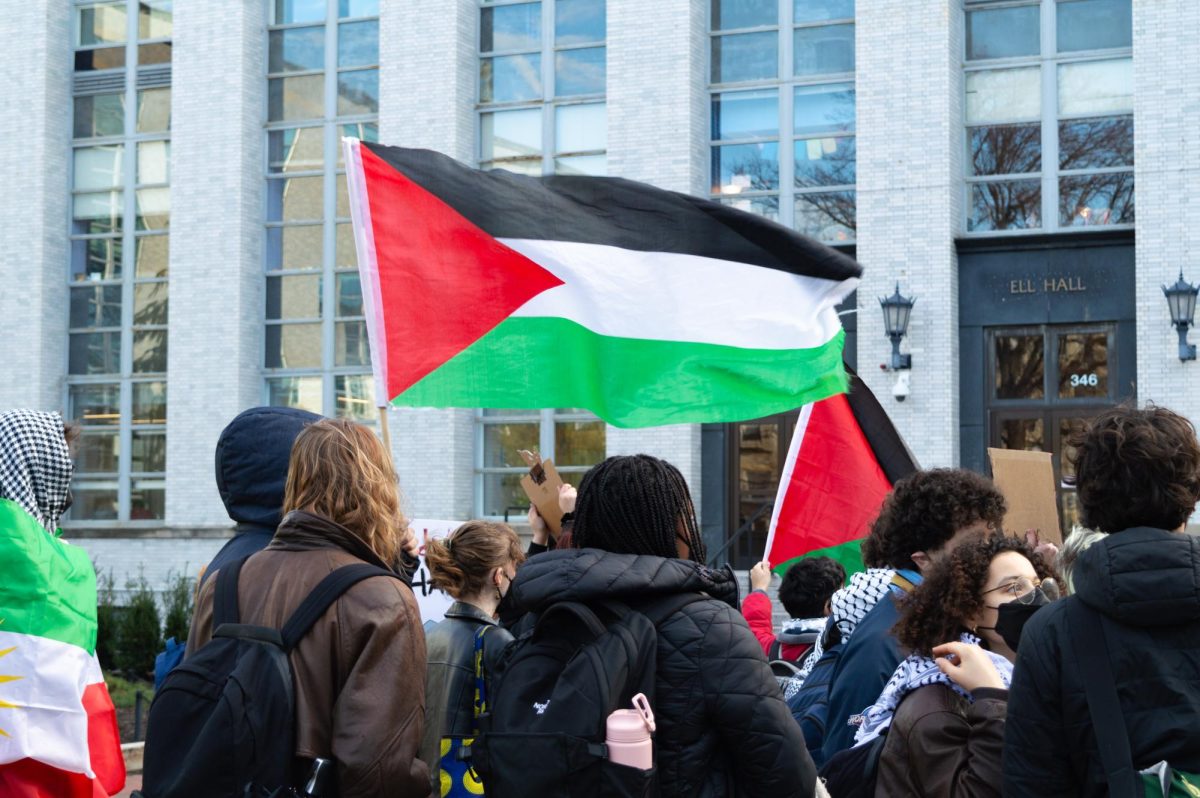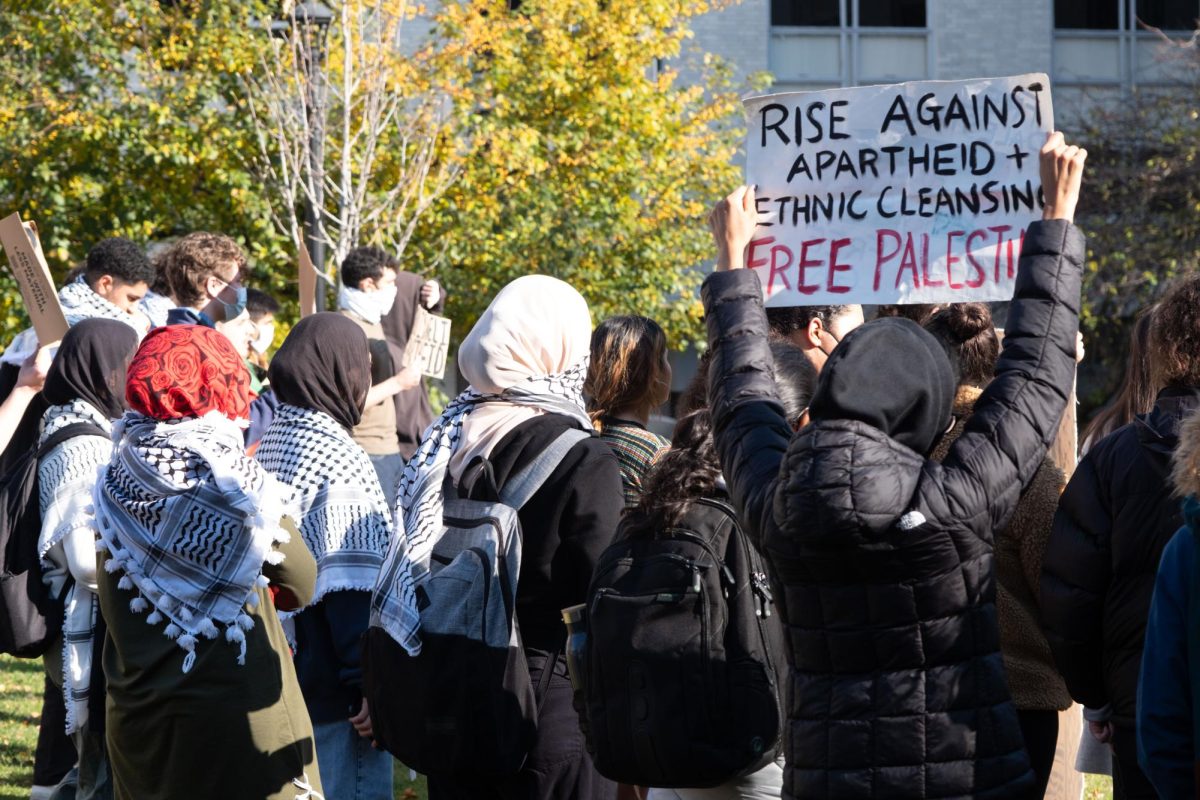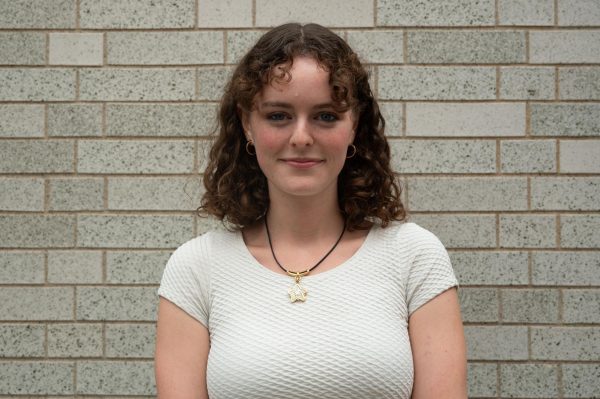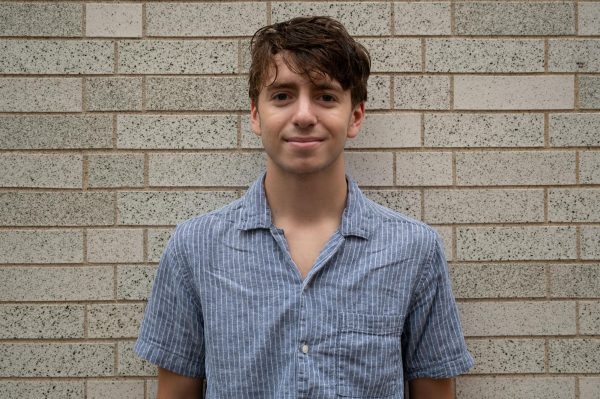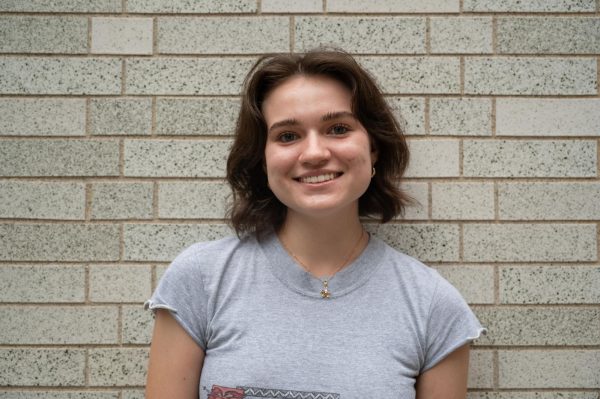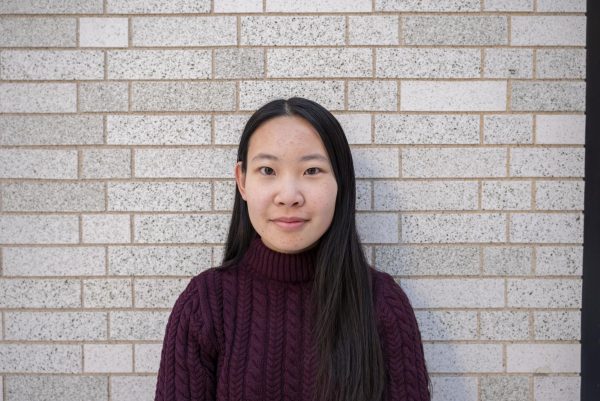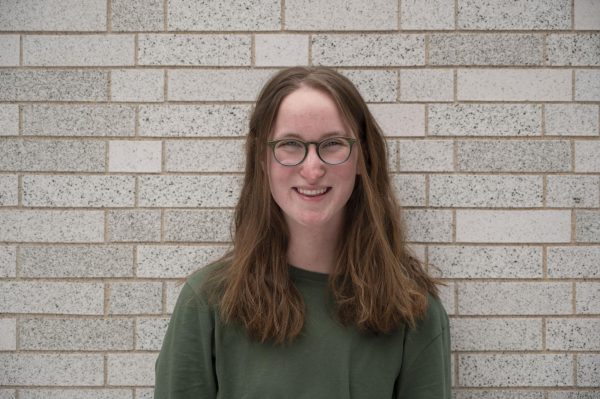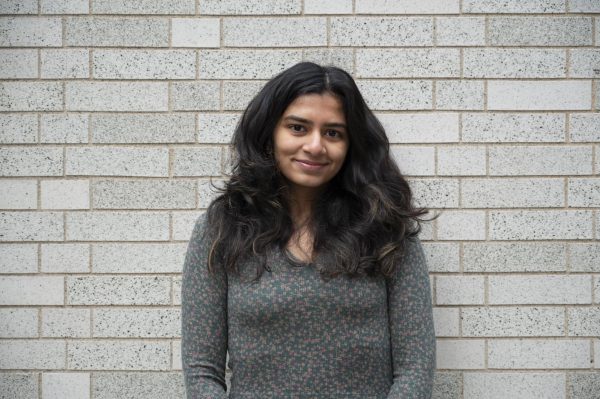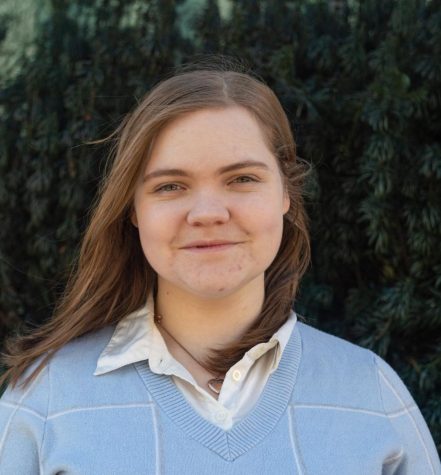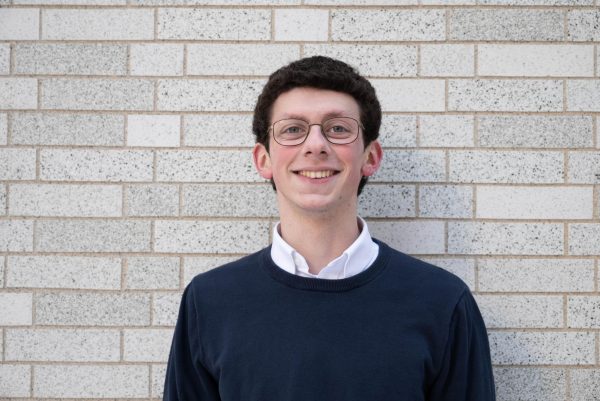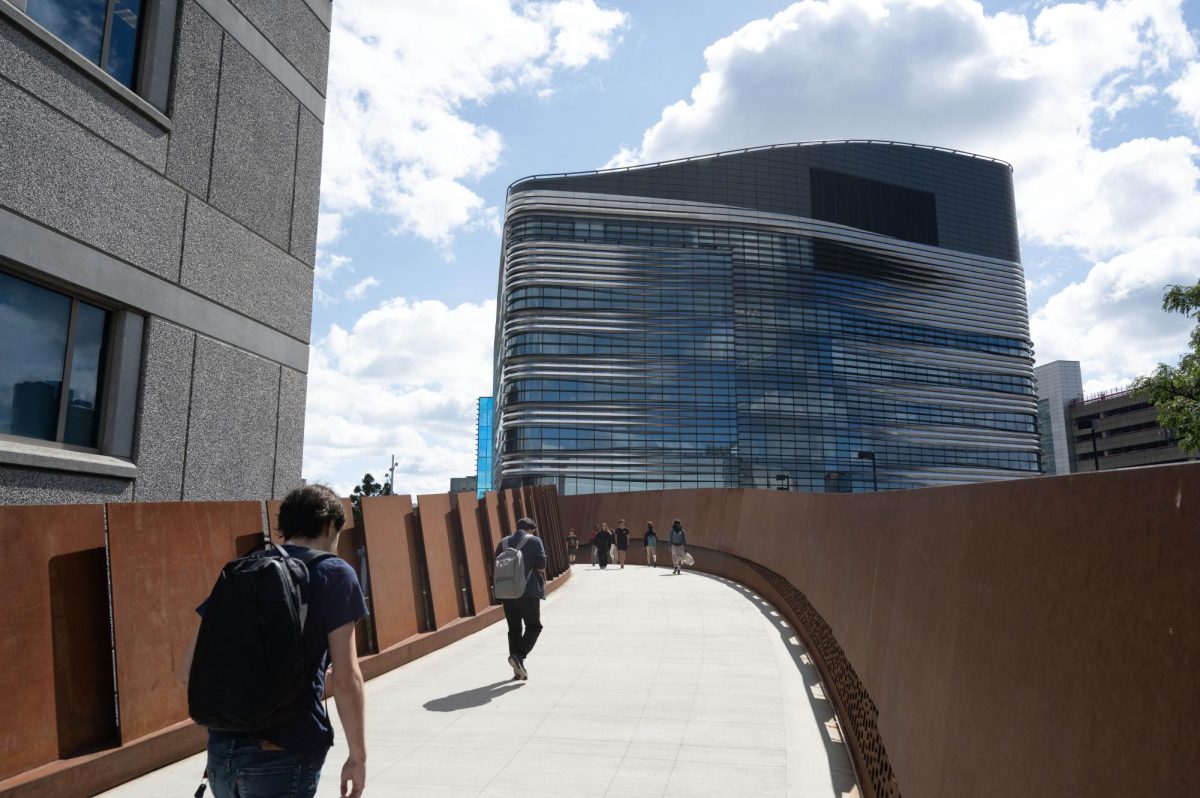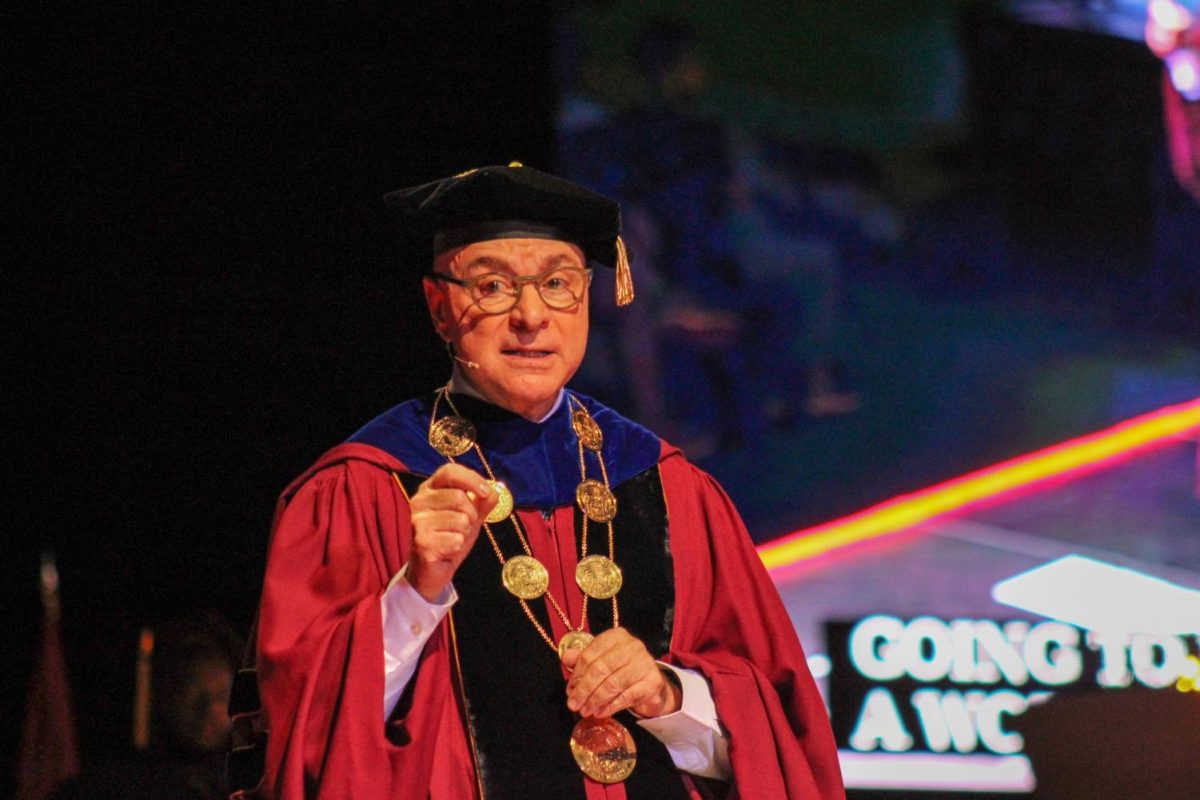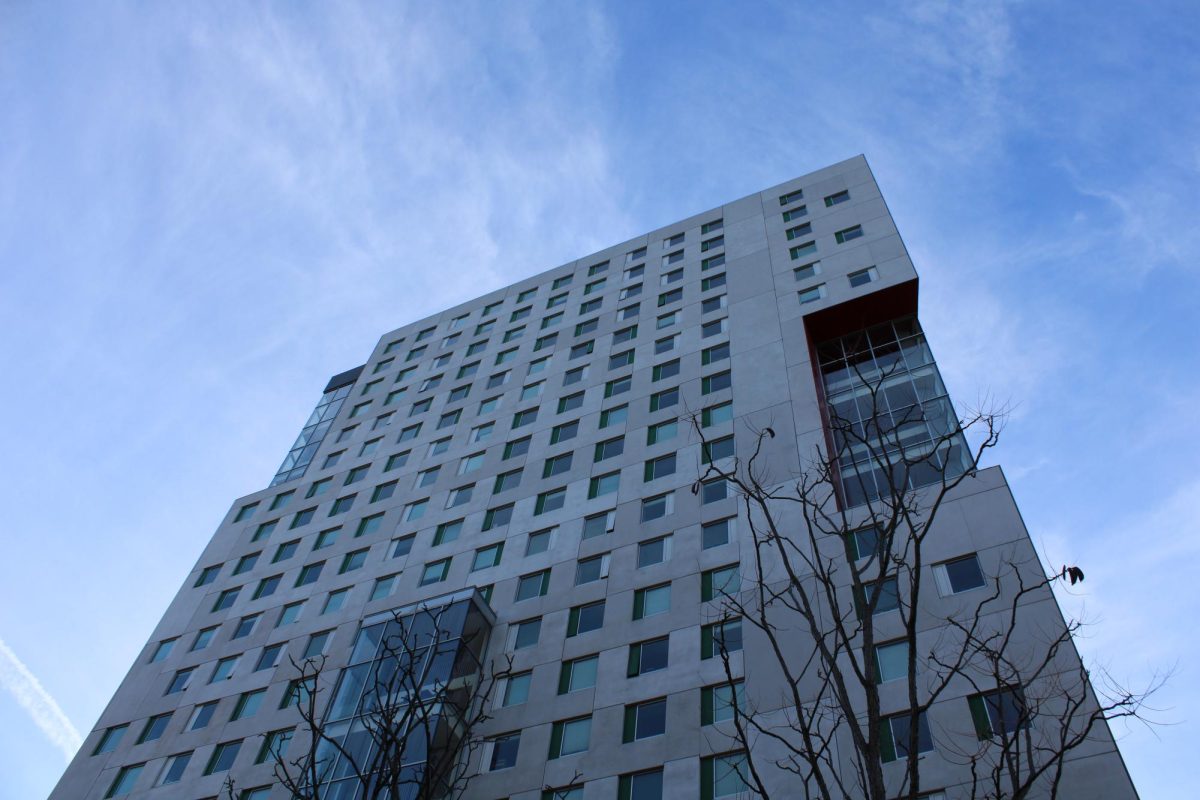For updates on the pro-Palestine encampment on Centennial Common, check our live feed.
On Oct. 7, Hamas — an Islamic, Palestinian nationalist militant group — carried out an unprecedented attack on Israel, reportedly killing over 1,200 people and taking 230 hostages.
Since the attacks, Israel has declared war on Hamas, reportedly killing over 30,000 people in Gaza as of April 24.
The News will continue to provide updates on the Northeastern community’s response to the Israel-Hamas war. This feed, alongside our in-depth coverage, will be continuously updated as the Northeastern community continues to respond to the events in the region
Northeastern professors, staff form Faculty for Justice in Palestine chapter
April 5
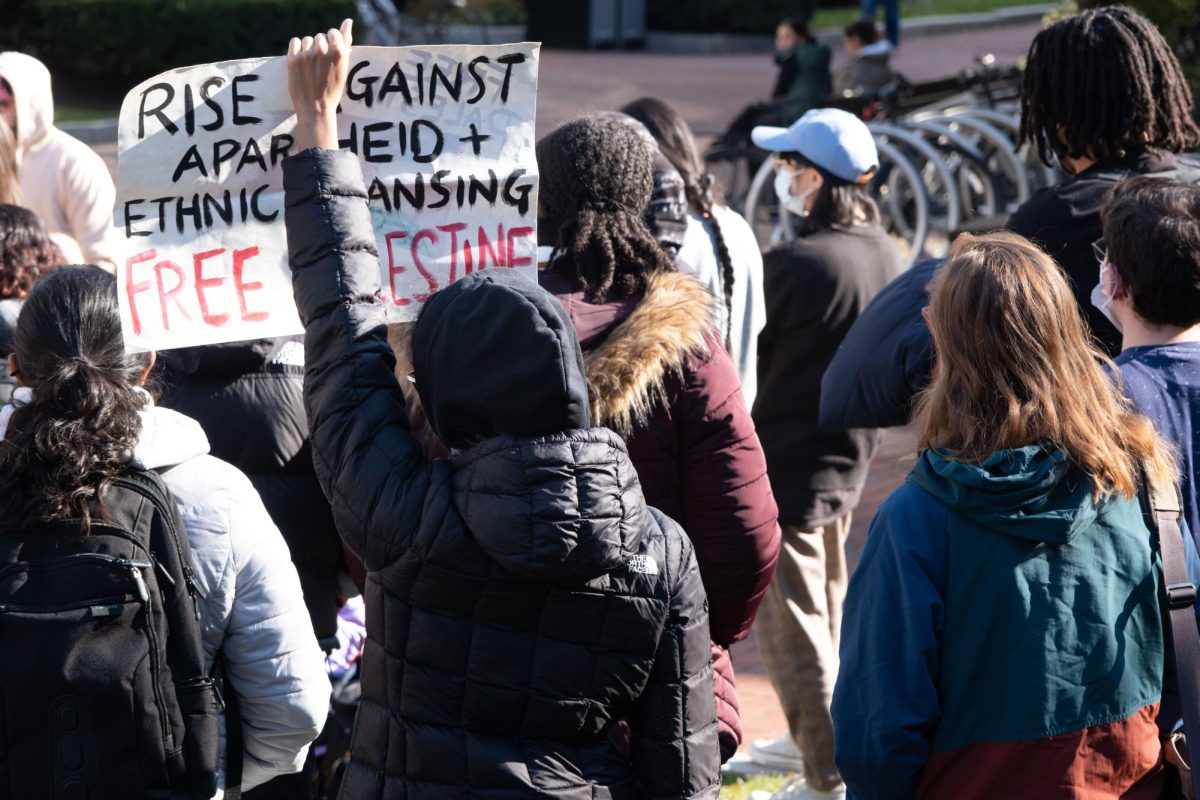
More than 20 Northeastern faculty and staff have formed a chapter of the nationwide Faculty for Justice in Palestine group and signed on to a letter expressing solidarity with Palestine.
The letter, which faculty shared with The News, condemns what it calls penalization of pro-Palestinian expression and “longstanding university norms and policies” that have been “unevenly applied” during student protests after the outbreak of the Israel-Hamas war.
“University campuses should not be corporate environments, but sites for debate, contestation and the struggle for truth,” the letter reads. “We cannot be silent bystanders, but engaged educators and scholars who stand against genocide and stand up for justice.”
Twenty-two professors, assistant professors and assistant teaching professors signed the statement, which also announces the formation of a Northeastern Faculty and Staff for Justice in Palestine, or NFSJP, group.
The letter’s publication comes after months of pro-Palestinian student activism calling on Northeastern to cut its ties with companies that do business with Israel and demanding an immediate ceasefire in Gaza. Students have also repeatedly called out the university for what they say is stifling and penalizing pro-Palestinian speech.
It’s not the first letter faculty have sent to the university regarding the Israel-Gaza war.
In November 2023, more than 120 faculty and staff members signed an open letter condemning antisemitism and criticizing pro-Palestinian protests where slogans like “From the river to the sea” are used.
Faculty for Justice in Palestine, or FJP, has chapters at 80 other campuses across the country. The organization was founded after Israel declared war on Hamas after Hamas’ Oct. 7, 2023 attack, according to the group’s website.
“We join a larger national network that has formed in response to the unprecedented censorship and retaliation for those who speak out on the Palestinian cause, particularly in light of the violent genocidal assault that continues to unfold on the Palestinians in Gaza,” NFSJP said in a statement to The News.
In a FAQ article published by university-run news outlet Northeastern Global News, the school says that it “does not impose limitations upon the freedom of faculty members” to decide what they teach. But discussions of what the school deems “controversial matters” should serve educational, and not political, agendas.
“Faculty members are always expected to exercise appropriate discretion and professional judgement in all facets of their teaching and research, and abide by Northeastern’s policies,” the article reads in response to the question “What is the university’s stance on academic freedom for faculty?”
FJP has six principles of unity for its chapters, which NFSJP echoes in its letter. The principles include endorsing the Boycott, Divestment and Sanctions movement; following action calls from faculty at Palestinian universities; defending and supporting students who are “defamed or disciplined” for supporting Palestine; educating the public about Israel’s “violent, repressive occupation”; and combating racism.
The letter says that while the group has been “heartened” by “some ways in which [the] university has responded to the current crisis,” it has also been “distressed” to see students punished for protests.
In a statement to The News, the group said it supports the university’s official recognition of the Students for Justice in Palestine, or SJP, and Northeastern Law Students for Justice in Palestine.
“At the same time, we are concerned by — and are monitoring closely — Northeastern’s uneven application of policies towards these student groups, such as vetting and approval of invited speakers, allowances to hold public events, and policing of their engagement with faculty and staff, among others,” NFSJP said.
During a chalking demonstration in November 2023, Mariam Hassan, a first-year student in the School of Law and organizer with SJP, told The News she found the university’s demonstration regulations limiting.
“It becomes impossible to do indoor things, disruptive things, and that’s what solidarity with Palestine means,” Hassan said.
In January, the Office of Student Conduct and Conflict Resolution placed three students who were involved in a Huskies for a Free Palestine, or HFP, protest in December on deferred suspension for breaking the school’s Code of Student Conduct. In February, the unofficial campus group was denied access to EXP when they attempted to deliver a letter calling on the university to demand a ceasefire in Gaza to President Joseph E. Aoun.
“Northeastern Faculty and Staff for Justice in Palestine stands in solidarity with Northeastern students who are advocating for Palestinian liberation,” the letter reads. “We seek to support and amplify student organizing. We also seek to promote scholarship and learning about Palestine, and on the interlocking histories of settler colonialism and empire more broadly.”
The group said its immediate demands for the school are aligned with the national FJP’s core principles.
“One thing we would like to see right away is more respect for students’ rights to express their views and to gather for events and demonstrations,” the group told The News. “This should be a campus where open debate and diverse views are encouraged rather than subjected to endless red tape and ever-changing requirements.”
FJP has chapters at Amherst College, Boston University, Harvard University and the University of Massachusetts on the Amherst and Boston campuses.
“We echo the words of colleagues elsewhere who have recognized the movement for justice in Palestine as a crucial terrain for defending freedom of expression within the academy; nurturing free inquiry and academic autonomy, engaged pedagogy, and open scholarship; and strengthening systems of democratic governance on our campus,” the group’s letter reads.
“We stand against all forms of racism, Islamophobia and antisemitism. We view the struggle for Palestinian freedom as interconnected with anti-racist and anti-colonial struggles around the globe, with movements for gender and sexual freedom, disability justice, workers’ rights, and a liveable and sustainable planet.”
Jewish students, organizations ‘disturbed’ after posters accusing Israel of genocide pasted on chairs in Northeastern classrooms
April 3
Juliette Piovoso, deputy campus editor
Chairs in several Northeastern classrooms were plastered with flyers reserving seats for Palestinians killed by the Israeli military April 3, prompting a committee within the university’s Jewish Studies Program to say it was “disturbed” by the incident.
The posters, which were not circulated by the university, can be seen in a video posted by the account @StopAntisemites on X. The posters’ appearance occurred during Northeastern’s Holocaust and Genocide Awareness Week and is now being investigated by the university and Northeastern police, according to a statement from Northeastern’s Holocaust and Genocide Awareness Committee.
The brief clip showed every chair in what appears to be a Ryder Hall classroom plastered with a poster reading, “RESERVED,” followed by the name of a civilian killed by Israeli forces in Gaza, the civilian’s age and the statement: “Martyr of the Gaza Genocide.” The committee said the posters appeared in “a number of Northeastern University classrooms.”
Multiple countries and organizations have accused Israel of inciting a genocide against Palestinians, while Israel rejects the claims.
The heading of the posters depicted the Northeastern logo and the words “Holocaust and Genocide Awareness Week.” The bottom of the posters read, in italics, “Northeastern refuses to recognize the 30,000+ victims of Israel’s ongoing genocide in Gaza. For Genocide Awareness Week, we demand divestment.”
Several student organizations have called for the university to divest from and cut ties with companies that do business with the Israeli military. The university rejected those demands in February.
The video posted by @StopAntimsemites focused on two posters displaying the names of 5-year-old Ahmed Abdel Karim Mounir Ghabayen and 5-year-old Ahmed Abdel Hadi Adel Daher, who were both reportedly killed by the Israeli military, according to Al Jazeera.
The News was unable to confirm who was responsible for the placement of the posters and the origin of the video.
Holocaust and Genocide Awareness Week, which runs from April 1 to April 7, is dedicated to raising awareness and fostering understanding about the Holocaust, genocide and the history of antisemitism, according to its website. The committee changed the annual event’s name to “Holocaust and Genocide Awareness Week” — adding “Genocide” — in 2018 to “better reflect the mission of learning from the past,” its website states.
“The students, faculty and staff responsible for organizing the University’s Holocaust and Genocide Awareness Week events are disturbed by the misuse of our name and the misrepresentation of our programming,” the statement by the Northeastern University Holocaust and Genocide Awareness Committee read.
The flyers were immediately taken down, and the Northeastern University Police Department is currently investigating the incident, according to the statement.
“The individual or group responsible for circulating these flyers is unconnected to the University’s Holocaust and Genocide Awareness Committee or the activities of Holocaust and Genocide Awareness Week,” the statement from the committee read.
In an Instagram story statement posted by Huskies for Israel, or HFI, the group expressed anger and frustration at the “exploitation” of such a significant week.
“Today, our history has been taken and warped,” the statement on the group’s page read. “This day has underscored the undeniable link between anti-Zionism and Anti-Semitism, affirming that they are inherently intertwined.”
HFI’s statement also added that the posters promoted Holocaust “inversion and revisionism,” which it said is a form of antisemitism and an “extremely disturbing way to promote an anti-Israel agenda.”
“The irony of using the systematic, industrialized murder of Jews to libel the Jewish state is sick and twisted,” the Instagram story read. “You can protest without trivializing and minimizing the massacre of Jews. It’s a shame that this needs to be said during a week dedicated to the Holocaust.”
Lori Lefkovitz, director of Northeastern’s Jewish Studies program, said she was most disturbed by the misappropriation of the Holocaust and Genocide Awareness Committee’s title.
“The most inappropriate part was the use of the logo,” Lefkovitz said. “To misrepresent what the work of the committee is, is wrong.”
Lefkovitz noted that several students contacted her to express their distress and concern about the incident.
“I’ve heard from students who were just very shaken by it and felt there was something very assaultive about it,” she said. “Some people felt that this was targeted against Jewish people and that it was an attack on Israel.”
Max Abrahms, an associate professor of political science and affiliated faculty of Jewish Studies at Northeastern, said the placement of flyers on classroom chairs disrupted the educational environment.
“The biggest transgression was how they went about disseminating their message, and not at all about the message they were disseminating,” Abrahms said. “You can’t go into classrooms and basically force students to consume this kind of controversial content.”
Abrahms also responded to the original post on X, writing, “Very little of the craziness gets picked up by media.”
Sabrina Chevlin, vice president of HFI and a third-year psychology and music combined major, said an intense feeling of uneasiness overcame her after hearing about the incident.
“When Jews see people equating the Holocaust to anything or using that word to refer to current events, it inherently is minimizing and trivializing what happened to us and our grandparents and our great-grandparents 80 years ago,” Chevlin said.
Chevlin said the incident particularly unsettled her because it was carried out during Holocaust and Genocide Awareness Week.
“Those flyers were used during a week dedicated to Holocaust education and awareness to protest what’s going on in Israel. Those things should be independent of each other and to confound the two is really scary for Jews to see,” Chevlin said. “My first reaction was fear and I think I speak for most of the Jewish community at Northeastern when I say that.”
Students divided over Northeastern’s refusal to divest from companies that do business with Israel
March 15
‘There’s nothing apolitical about $1.5 billion’: Sunrise Northeastern protests university’s investments in recent campaign
7 p.m. Feb. 20
Zoe MacDiarmid, news staff
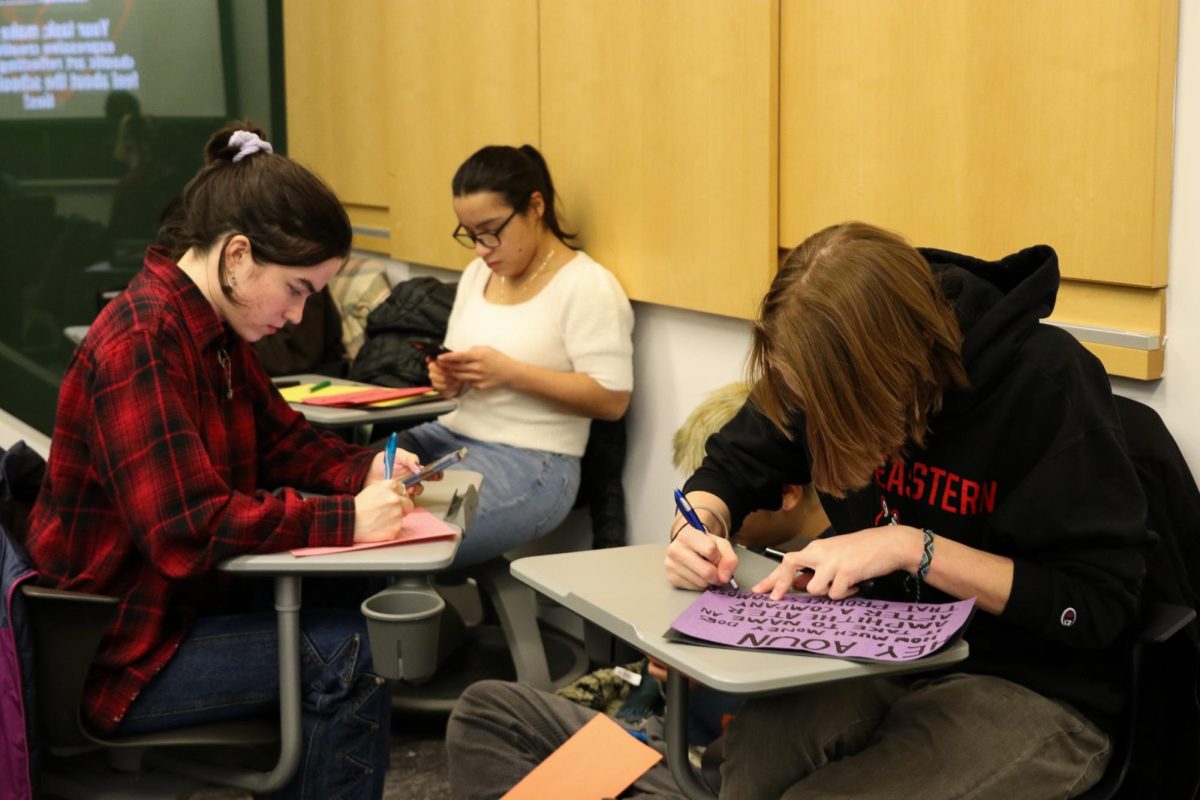
Environmental activism group Sunrise Northeastern gathered Feb. 20 to write Valentine’s Day-themed letters opposing the university’s investments in military-industrial companies.
The event, dubbed “Break-Up with the Military-Industrial Complex,” generated more than 40 letters addressed to President Joseph E. Aoun that implored the university to divest from companies that produce military weapons.
Every month, Sunrise Northeastern picks a particular issue to focus on, said Cassidy Chang, a fourth-year environmental studies major and co-hub coordinator for Sunrise Northeastern. This month’s issue is the military-industrial complex, inspired by the Boston College Sunrise chapter’s “break up” campaigns, Chang said.
For years, student organizations have raised awareness and demanded the university divest from military-industrial companies. And in March 2023, Northeastern’s Student Government Association passed a resolution calling for Northeastern to discontinue its collaboration with private military companies.
The campaign’s goal is to continue pushing Northeastern to divest its endowment from companies supporting the military-industrial complex and to provide “people the space to be creative with their frustrations and their anger,” she said.
“A lot of times with international conflicts like this, there isn’t a lot you can do, and you feel really powerless and helpless,” Chang said. “When you’re in this space, and there’s a good vibe and the people around you are all sharing the same motivations … it feels really powerful.”
This month’s campaign comes at a tumultuous time for advocates of divestment. In an FAQ post last updated Feb. 14 on the school-run media outlet Northeastern Global News, or NGN, the university indicated it would reject student demands to cut ties with companies that do business with the Israeli military.
In the context of businesses doing business with the Israeli military, Northeastern said its “endowment is invested to maximize opportunities for advancing the university’s educational and research mission” and that it should “not be seen as an instrument to serve specific political agendas or weigh in on matters upon which reasonable people can disagree.”
Northeastern invests its endowment primarily in commingled funds, or a collection of assets; this means it does not hold “direct investments” in any companies, according to the FAQ post.
Chang said that once NGN published the FAQ, Sunrise’s outlook on their February campaign “definitely changed.”
“I think a lot of this event was just supposed to be get together, kind of relaxed, connect with each other, have a little bit of fun, make some like snarky poems towards the university,” Chang said. “But then, after this FAQ came out, we realized that we had a pivot towards the more serious understanding of the topic, with that being more like [an] actual conversation around the actual destructive ways that this was happening.”
The initial “Break Up With the Military-Industrial Complex” event was postponed due to the school’s announcement of a snow day Feb. 13, so the event took place after the FAQ was published, which was a “coincidence,” Chang said.
Jonathan Bacdayan, a fourth-year environmental studies major and organizer with DivestNU, a campus group that advocates for the university to “remove all fossil fuel investments from its endowment,” said the FAQ speaks to tensions between the university and activist groups.
“The administration doesn’t really acknowledge most of the activism that happens,” Bacdayan said. “They only really come down with the hammer when they feel they need to. … That’s why we continue to try to work on generating more pressure. … There is certainly not a working relationship on an ongoing basis between activist groups and the administration.”
Despite the frustration, Chang said Sunrise will continue its campaigns, especially those focusing on the overlap between environmental activism and human rights.
“The intersectionality of environmental issues is so important to Sunrise,” Chang said. “I want to make sure that when people come [to Sunrise], they know that all of these issues are affecting each other.”
The group is motivated now more than ever to be heard, said Lucas Good, a third-year environmental studies major and Sunrise co-hub coordinator. Good said he rejects the university’s statement that “the endowment should not be seen as an instrument to serve specific political agendas or weigh in on matters upon which reasonable people can disagree.”
“Breaking down the intentions behind this event in terms of calling the university to divest from the military-industrial complex is necessary and any claim that they might make around an apolitical tool of their endowment, I think, is nonsense,” Good said. “There’s nothing apolitical about $1.5 billion.”
Northeastern indicates it will not divest endowment holdings, sever ties with companies who do business with Israeli military
Feb. 14
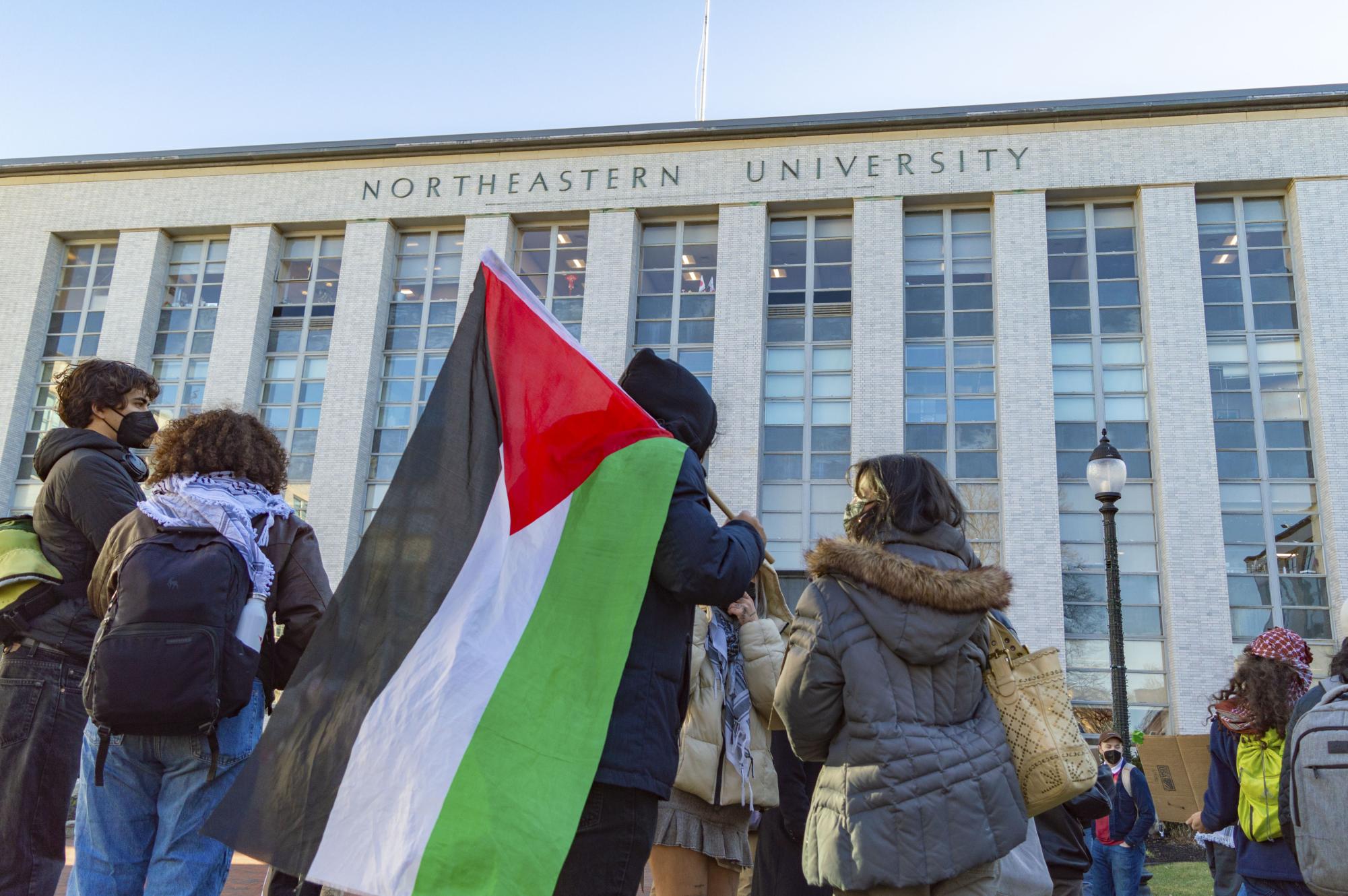
Northeastern indicated on Wednesday it is rejecting student demands to divest and sever ties with companies that do business with Israel.
In an updated FAQ article on the school-run media outlet Northeastern Global News, or NGN, the university provided answers to the questions “Will Northeastern sever its ties with corporations that do business with the Israeli military? And will the university commit to divest its endowment holdings in these companies?”
The university indirectly answered both, asserting it would not “support efforts to curtail students’ experiential learning options, ” “ impose a political test on employers” nor use its endowment as an “instrument to serve specific political agendas or weigh in on matters upon which reasonable people can disagree.”
Pro-Palestine student groups have organized roughly a dozen protests on campus — including sit-ins, marches and walkouts — since October. Many in the Northeastern community have also circulated numerous letters and petitions calling out the university for alleged suppression of pro-Palestine student speech and failing to call for a ceasefire, recognize Israel’s historic killing of Palestinians, and cut ties with and divest from military-industrial companies.
Since the start of the war Oct. 7, President Joseph E. Aoun, Provost David Madigan and Chancellor Ken Henderson have released one statement Oct. 10 condemning Hamas’ attacks and mourning for “all the innocent lives that have been lost” in Gaza and Israel.
In response to several questions regarding whether the university had a response to ongoing student protests against the Israel-Hamas war, the university sent a link to the FAQ to The News.
While the FAQ addressed a question about whether the university would respond to student demands to divest from military-industrial companies, Northeastern did not directly respond to questions asking whether it plans to release further statements about the conflict or if it has a response to student claims that it is engaging in suppression of pro-Palestinian student speech.
The FAQ answers, which were added to an article first published by NGN Dec. 11, emphasized the university’s focus on its experiential learning and co-op programs. The co-op program relies on the university’s relationships with various companies that employ students, and students seek out employment opportunities with companies that “align with — and enhance — their classroom studies,” the statement read.
A chief demand from many students protesting the war is that the university stops working with and investing money into military-industrial companies — like Raytheon and General Dynamics — that supply weapons to the Israeli military.
But the university said it would not limit employer options based on demands from students with “strong political viewpoints.”
“The university does not impose a political test on employers, nor would we support efforts to curtail students’ experiential learning options,” the statement continued. “We would hope that students who have strong political viewpoints would not try to impose their views in a way that limited opportunities for their classmates.”
The university also said it did not see its endowment — which summed $1.5 billion as of July 2022 — as a political tool.
“Northeastern’s endowment is invested to maximize the opportunities for advancing the university’s educational and research mission,” the FAQ said. “The endowment should not be seen as an instrument to serve specific political agendas or weigh in on matters upon which reasonable people can disagree.”
The university said it does not hold “direct investments” in any companies but invests instead in “commingled funds — akin to mutual funds for individual investors — that include securities across a broad range of economic sectors.”
The university also did not directly address questions from The News about their response to some pro-Palestine student groups claiming the university is “targeting” pro-Palestine students.
Read the full FAQ update below:
Will Northeastern sever its ties with corporations that do business with the Israeli military? And will the university commit to divest its endowment holdings in these companies?
Northeastern is the world leader in experiential learning, powered by a co-op program that maintains connections to thousands of employer partners. Students seek out co-ops with employers that align with – and enhance – their classroom studies. The university does not impose a political test on employers, nor would we support efforts to curtail students’ experiential learning options. We would hope that students who have strong political viewpoints would not try to impose their views in a way that limited opportunities for their classmates.
Northeastern’s endowment is invested to maximize opportunities for advancing the university’s educational and research mission. The endowment should not be seen as an instrument to serve specific political agendas or weigh in on matters upon which reasonable people can disagree. It is important to underscore that Northeastern does not hold direct investments in any companies. This is because the endowment is invested primarily in commingled funds—akin to mutual funds for individual investors—that include securities across a broad range of economic sectors.
University confirms delivery of Huskies for a Free Palestine letter after organization denied entry to EXP
Feb. 8
More than 50 students marching with Huskies for a Free Palestine, or HFP, were denied access to EXP Feb. 8 when they attempted to deliver a letter to President Joseph E. Aoun demanding the university “condemn the ongoing genocide in Gaza and call for an immediate ceasefire,” according to an Instagram post from the organization, which is not officially approved by the university.
The Instagram post said administrators promised to deliver the letter to Aoun, who has only addressed the conflict with the Northeastern community once in a joint statement Oct. 10, which condemned Hamas’ initial attack on Israel. A Northeastern spokesperson confirmed in a Feb. 9 afternoon email to The News that the letter was delivered.
The HFP-organized walkout began in Snell Quad and progressed to EXP, which houses Aoun’s office. According to the Instagram post, participants encountered “a heavy police presence” outside of the building and were not permitted to enter.
The News confirmed with an NUPD officer in a 5:30 p.m. phone call and an official at the entrance of EXP at approximately 6:30 p.m. Feb. 8 that the Northeastern University Police Department was not allowing those who did not have classes into the building. The official and officer declined to give further information.
The university did not answer questions about how long access to EXP was restricted or whether the person at the door was an administrator or a member of NUPD.
“The building was never closed. As you probably know, according to the Code of Student Conduct, student demonstrations may not be conducted in faculty or administrative offices, classrooms, libraries, or study areas,” a Northeastern spokesperson said in an email statement to The News. “For this reason, we adjusted access protocols at EXP for the day.”
The letter, which was co-signed by Northeastern University Students for Justice in Palestine and Northeastern University School of Law Students for Justice in Palestine also called on the university to divest from companies that support the state of Israel and sever partnerships with defense companies Elbit, Raytheon, Northrop Grumman and General Dynamics.
“As institutions that aim to foster academic dialogue and healthy debate, we urge the greater universities to align themselves with their stated commitment to students,” the letter read. “We urge the university to divest from war-profiteering genocidal corporations and entities, and instead prioritize the well-being of the Northeastern community.”
Northeastern University School of Law Students for Justice in Palestine delivered a similar letter to the dean’s office and the co-op office at the Northeastern School of Law as part of a national day of action organized by Students for Justice in Palestine’s national chapter, according to an Instagram post by the organization.
Hundreds gather to protest war in Gaza, allege university suppression of student speech
Feb. 4
Quillan Anderson, news staff
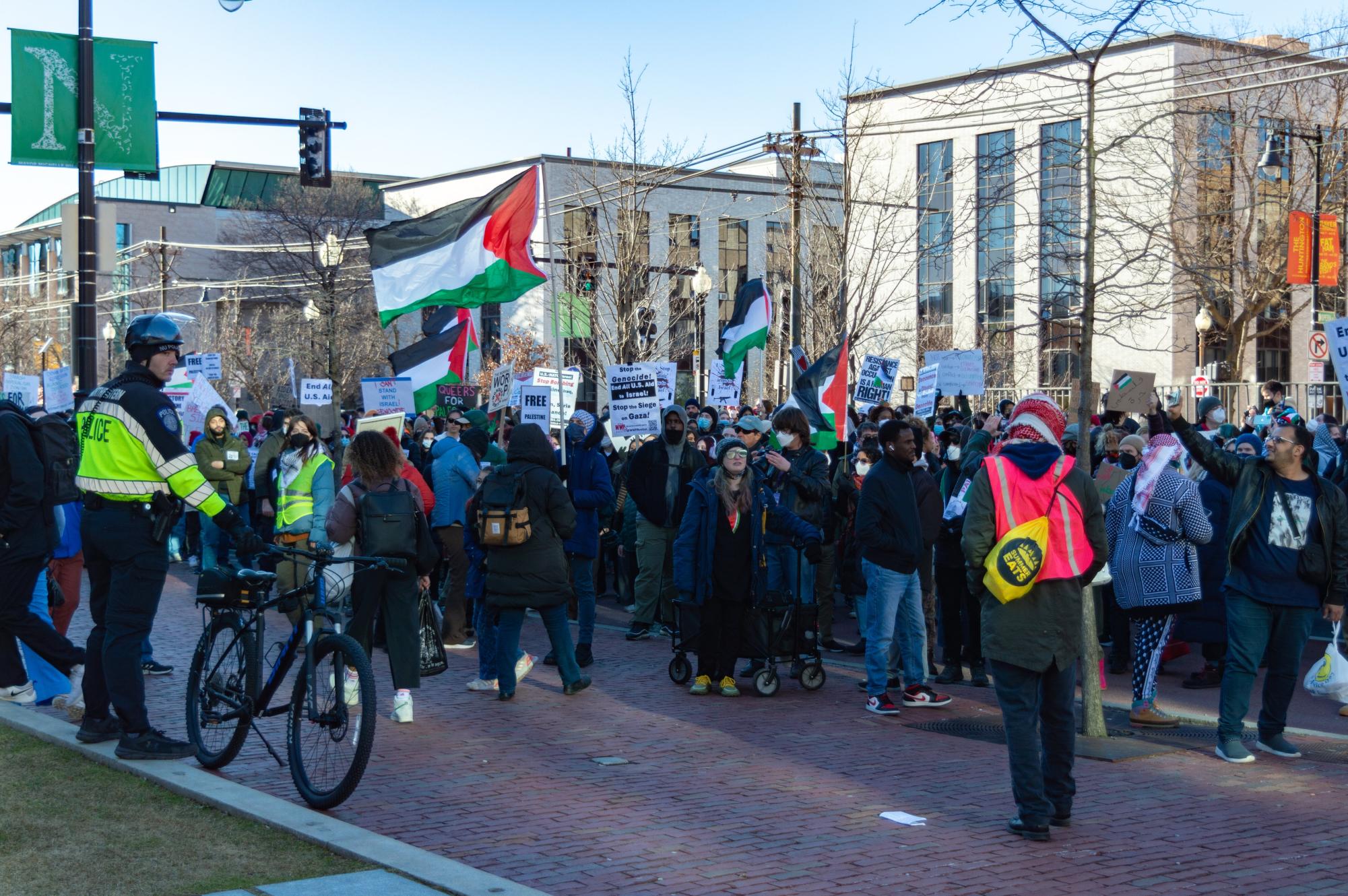
Hundreds of demonstrators gathered at Roxbury Crossing Feb. 4 to protest the stifling of pro-Palestine student speech on Boston’s college campuses. The march closed parts of Tremont Street and Huntington Avenue from 2-4 p.m.
The demonstration was organized by the Boston Coalition for Palestine, or BCP, and promoted by Northeastern’s clubs as a “March for Palestine Against Warmakers at Northeastern University.” BCP comprises over 30 organizations across Boston, including Huskies for a Free Palestine, or HFP; Students for Justice in Palestine, or SJP; and Boston’s Party for Socialism and Liberation, or PSL.
The march started at Roxbury Crossing before going down Tremont Street and Huntington Avenue, ending in front of Northeastern’s Krentzman Quad. The group was escorted by two Boston Police Department officers clearing the roads ahead, followed by three SUVs and a police van. Northeastern University Police Department officers stood around the edges of campus with bikes and marked the line between public and private property. Demonstrators overtook the street and sidewalk, shutting down Huntington Avenue between Forsyth Street and Massachusetts Avenue for an hour.
Chants of “Drop the charges,” “Northeastern, you can’t hide, you’re supporting genocide” and “NUPD, KKK, IDF, you’re all the same” echoed throughout the quad.
A speaker who identified themselves as a representative from the Northeastern chapter of SJP spoke about the group’s alleged suppression over the years, including when the university suspended the club for several months in 2014.
Another speaker who identified themselves as a member of HFP discussed similar issues. HFP previously organized a sit-in Dec. 1 that resulted in consequences and disciplinary hearings for three involved students. The students were found responsible during their hearings and were put on deferred suspension.
The gathering at Roxbury Crossing opened with a demonstrator playing a drum and singing. The crowd sang along to the chorus of “Ella’s Song,” a song honoring Civil Rights activist Ella Baker commonly performed at protests.
Along with the outpouring of support, a Palestinian student from Harvard, who identified herself as Leah, warned against the popularized “synthetic solidarity” based only on suffering.
Leah asked attendees to reflect on their involvement with complicit institutions such as their workplaces, schools and communities.
She highlighted the importance of a strategy referred to as BDS, which stands for boycott, divest and sanction, both at the institutional and personal levels. For her and many others at the march, this strategy is often used among student populations in Boston universities.
A representative of Boston’s PSL, who identified himself as Yaakov, spoke of the recently passed ceasefire resolutions in Somerville and Cambridge as proof that efforts to organize are working.
When the Cambridge resolution was introduced in November 2023, city councilors did not stand behind it. When PSL and other groups pushed back against the councils’ inaction, they were allegedly told to tone it down and stop disrupting operations.
“Now let the festivities actually begin,” organizers said as music played loudly, including “Dammi Falastini” by Mohammed Afsaasni and “Allah M7yeh Falastin” by Muhannad Khalaf. Demonstrators began to dance and sing along, integrating a celebration of Palestinian culture and livelihood into the event.
Editor’s Note: This story was updated at around 11:00 p.m. Feb. 12 to remove quotes of speakers at the rally whose identities could not be confirmed.
3 students placed on deferred suspension following Dec. 1 Huskies for a Free Palestine sit-in
Jan. 30
All three students charged with violations of the Code of Student Conduct after a Huskies for a Free Palestine sit-in Dec. 1 were found responsible in their hearings with the Office of Student Conduct and Conflict Resolution and have been placed on deferred suspension, The News confirmed with charged students Tuesday.
According to one of the charged students, who asked to remain anonymous due to fear of further retaliation, they were notified about the results of their hearing via email Friday.
The students were all charged with four violations, which were disorderly conduct, noncompliance, noise and violation of university policies.
The first student confirmed to The News they were found responsible for each charge except for noise. A second student said they were found responsible for each charge but failure to comply. The third student declined to speak to The News.
According to the first student, three meetings were held between all of the charged students and the hearing administrator. The first hearing was held Jan. 10 and the third hearing, which was called because “new information” was acquired, was held Jan. 19, the student said. The News could not confirm the date of the second hearing.
The three students received deferred suspensions until the end of the spring 2024 semester, which the Office of Student Conduct and Conflict Resolution, or OSCCR, defines as “the highest level of warning issued by the University.” The first student also said they would have to write “essays” by March 1 detailing what happened, why the students’ actions were wrong and why the policies they were accused of violating are in place. The second student said all three of the charged students received the same punishment.
“Northeastern takes all violations of its Code of Student Conduct seriously and enforces all policies uniformly and irrespective of student group affiliations,” said Renata Nyul, vice president for communications at the university, in an email statement to The News. “The university does not comment on specific conduct cases.”
When a student is on deferred suspension, they are allowed to take classes, live in residence halls and participate in university events, however, they are barred from holding leadership positions in clubs and may be “limited in their ability to attend University programs, including those outside the country.” The OSCCR website also states that deferred suspension is a warning “to remind the student that should any other incident occur, more severe sanctions may result.”
According to the first charged student, three different Northeastern University Police Department, or NUPD, officers spoke against the students at the hearing. The student said the NUPD officers considered them a “leader” at the Huskies for a Free Palestine, or HFP, sit-in because they were “facilitating communication” between officers and sit-in participants.
According to the second charged student, who said they gave a speech, read poetry and led chants at the sit-in, the NUPD report which charged them with conduct violations included language saying the student was “aggressive” and “enraged.”
“Despite the admission of admin and police in their report that the demonstration was entirely peaceful, the NUPD report used racist language to describe my participation in chants as ‘aggressive,’ ‘enraged’ and that they were ‘afraid’ to talk to me,” the student told The News.
The first charged student said at the hearing, officers said the charged students didn’t comply because they didn’t vacate the sit-in area, located on the second floor of the Curry Student Center, when asked.
“I’m very frustrated because it feels like this is hearsay and they’re just trying to pin this on somebody,” the first student said in an interview with The News. “I feel like none of my witness statements were considered. I feel like whatever the dean and deputy said was more valued than my voice.”
The first student said they felt the charges were “exaggerated.” Officers at the hearings referred to them as a self-identified student leader, even though the student said they did not make that distinction, the student told The News.
“I think the university is trying to silence students at the moment and intimidate us through threatening sanctions and through this process,” they said. “But by pinning three students who actually weren’t even organizers — instead of all 200 that were doing the same things — it’s all just to distract and instill fear.”
The outcome of the hearings was also announced in a post on HFP’s Instagram page Tuesday. The post said one of the charged students was a volunteer “cornered” by administrators at the rally and another was a police liaison who did not participate in sit-in activities.
“After over a month of disciplinary procedure, students charged for participating in our December 1st sit-in received notice that they are now essentially on probation- prohibited from holding EBoard positions and threatened with suspension or expulsion if the university once again fabricates reasons to charge them,” the Instagram post stated, emphasizing HFP’s belief that the university was singling out the three students out of more than 200 that attended the sit-in.
Sit-in participants were first notified of potential disciplinary action Dec. 13, according to a Dec. 16 HFP Instagram post. The group held an “emergency rally” against the disciplinary hearings Jan. 10 on Krentzman Quad for three of the students involved. At the rally, NUPD officers requested to see students’ IDs, however, not all students complied.
In the Instagram post announcing the outcome of the hearings, HFP said they will be marching with the Boston Coalition for Palestine Sunday at 1 p.m. at Roxbury Crossing to call on Northeastern to drop the disciplinary actions against the three students and to divest from military-industrial companies supplying weapons to Israel.
“At the end of the day, I think what should be centered is divestment. I feel like [the university] is trying to use these trials and punitive measures to distract and take away attention from the momentum [of the movement],” the first student said. “They’re essentially trying to repress students and make them fearful of having the right to free speech and of having the right to political expression.”
Northeastern Law Students for Justice in Palestine boycott Tatte Bakery and Cafe due to ‘pro-Israel’ founder
Jan. 21 – Jan. 28
View this post on Instagram
Members of Northeastern School of Law’s Students for Justice in Palestine chapter, or NUSL SJP, will boycott Tatte Bakery and Cafe as a part of a global strike week calling for a permanent ceasefire in Gaza, the group announced in an Instagram post Monday.
The organization will offer free coffee all week in the basement of Dockser Hall as an alternative to buying from Tatte, according to the Instagram post.
“We’re deciding to boycott Tatte because it’s a local target that is very close to the university,” said Pavithra, a law student and member of NUSL SJP who asked for her last name to remain anonymous due to safety concerns. “Lots of students end up purchasing stuff [from Tatte] throughout the day.”
Pavithra said the organization specifically decided to boycott the chain, which has locations in Massachusetts and Washington, D.C., because its founder had “posted a lot of harmful messaging and rhetoric promoting the Israeli side of things.”
Tzurit Or, the Israeli-born founder of Tatte, stepped down from her position as CEO of the company in July 2020 after employees said those in leadership positions at Tatte had made “racially charged” and “insensitive” statements, according to a petition launched by Tatte employees on Change.org.
Or has also reposted unverified claims to her LinkedIn page, such as a post that stated an Israeli hostage released from captivity said their captor was a teacher from the United Nations Relief and Works Agency for Palestine. Another captor, the post said, was a Gazan doctor.
“The UN Supports War Crimes,” the post said.
The pastry chef, who founded Tatte in 2007, also reposted content condemning Columbia University’s response to the war which claimed that, by failing to mention Hamas by name in its public communications, the university had no “moral backbone.”
Palestinian activists behind the global strike week have called on supporters to walk out of school and work and boycott companies that support Israel from Jan. 21 to Jan. 28 in an effort to push for a ceasefire in the ongoing Israel-Hamas war.
The strike was initially called for by Palestinian journalist Bisan Owda in an Instagram post.
“We want to participate in the global strike and this week of boycotting, now and going forward, to comment that we stand behind Palestine,” Pavithra said. “We want to use the economic power that we have to promote and purchase products that are helping and not harming the people of Palestine.”
Northeastern School of Law Students for Justice in Palestine chapter Jan. 16 sit-in draws over 60 students
9 a.m. – 7 p.m. Jan. 16
Erin Fine, news staff
Northeastern University School of Law Students for Justice in Palestine chapter staged a 10-hour sit-in in Dockser Hall Commons Jan.16 with over 60 students in attendance. Participants called for a ceasefire in what they said was the Israeli “genocide” of Palestinians in Gaza and urged the university to divest from companies that profit from the conflict.
Law students in the Northeastern University School of Law, or NUSL, organized the protest, which was held from 9 a.m. to 7 p.m. and included speeches from multiple student activists, to protest NUSL’s involvement with Israel. According to an Instagram post from Northeastern University School of Law Students for Justice in Palestine, or NUSL SJP, NUSL suppresses pro-Palestine attitudes and movements among law students through, “police brutality directed at peaceful student protesters, threats of ‘condemning’ student activists, suppression of student statements, and the removal of posters and banners.”
“One of the things that we wanted to do today is call attention to the fact that it’s been [over] 100 days of this current genocidal onslaught of the Palestinian people committed by Israel, and we wanted to be disruptive to get people out of their status quo, out of going about day by day as if nothing is happening,” said Hala, a second-year law student who asked for her last name to remain anonymous due to fear of potential doxxing. “The sit-in is partly to say, ‘Stop going to classes, stop pretending like everything is normal, but also come and read about Palestinian writers and poets and historians and what it means to be a Palestinian advocate.’”
Northeastern University Police Department officers and NUSL staff were present throughout the sit-in to monitor the protest. Attendees said they were concerned about the level of surveillance, feeling that other students on campus did not receive similar treatment. NUPD and NUSL staff declined to comment when approached at the protest.
Dozens gather in protest of disciplinary charges against three students involved in Huskies for a Free Palestine December sit-in
1 – 2:30 p.m. Jan. 10
Quillan Anderson and Emily Spatz
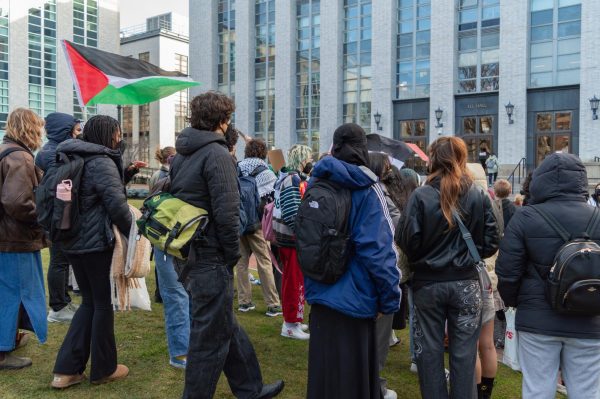
Dozens gathered in front of Ell Hall Wednesday afternoon to protest Northeastern’s disciplinary hearings for three students involved in a controversial sit-in last month, where students condemned the university’s “complicity” in what they called Israeli genocide of Palestinians.
The demonstration, which Huskies for a Free Palestine, or HFP, announced Tuesday on Instagram as an “emergency rally,” took place the same day as the hearings, according to the HFP Instagram post. Though it was unclear when or where the hearings were held, the Office of Student Conduct and Conflict Resolution, which executes and oversees disciplinary hearings, is located in Ell Hall.
“We’re here today because Northeastern is wrongfully charging students for simply their First Amendment right — freedom of speech,” said an attendee of the rally, who asked to remain anonymous due to safety concerns.
Attendees spread throughout Krentzman Quad from 1 p.m. to 2:30 p.m., waving Palestinian flags and holding signs that read “Stand against genocide,” “End Israeli apartheid” and “Gaza lives,” among other slogans.
Though the rally was largely silent, attendees occasionally engaged in chants such as “Not another nickel, not another dime, no more money for Israel’s crimes” and “You can suspend us, but you can’t suspend the movement.”
The rally had a large police presence from the Northeastern University Police Department, or NUPD, who asked for participants’ IDs repeatedly throughout the demonstration. Assistant Vice Chancellor of Student Life Maura Mahoney was also present and asked students for IDs, including those that joined the protest throughout its duration.
An NUPD officer told The News they were checking IDs to “confirm it’s the Northeastern community on campus.” Some protesters provided their IDs, while others refused.
“[I’m worried about] safety and possible retaliation because we are here fighting against charges that were brought upon protesters like us for the most non-antisemitic words you could possibly say,” the aforementioned attendee told The News. “It’s a bit worrisome, and that’s why we are wearing masks, and that’s why it’s good to go with people so you’re not just here by yourself, but I don’t think it’s scary enough to stop me from coming.”
Police officers told the protesters several times throughout the demonstration that they had received several complaints from professors that the protest was disrupting their classes. Chants continued after the warnings.
The demonstration also drew the attention of several people donning Israeli and U.S. flags, who observed from nearby.
In addition to protesting disciplinary charges against students, attendees said they were disappointed in what they called the “silencing” of Palestinian voices and the school’s partnership with military-industrial companies that supply weapons to Israel.
“I regret every single amount of money that I’ve given to this school in the name of tuition,” said a fifth-year protestor who is graduating this year and asked to remain anonymous due to safety concerns. “After I graduate I am severing every tie with this school. I am going to hang my head in shame every time someone asks me where I went to school. I will never speak about this school with pride. Never.”
Alumni release open letter in support of students facing disciplinary charges, hold “action hour” condemning the university
12 p.m. Jan. 8
Northeastern Alumni for Palestine and Huskies for a Free Palestine held an “action hour” Jan. 8 demanding the university drop charges against several students facing disciplinary hearings after a controversial December sit-in the latter group held.
During the action hour, which was held at noon virtually using Jitsi video conferencing, participants called and emailed the Office of Student Conduct and Conflict Resolution, or OSCCR, using a shared template to urge the university to stop “intimidation of pro-Palestinian students” and divest from its ties with “war-profiteering companies.” Attendees were also prompted on an action item document to fill out an incident report form through OSCCR, which is traditionally used to initiate complaints against students who violate the Code of Conduct, according to the OSCCR website.
It was not made clear why participants filled out the incident report form, but according to the OSCCR website, reports filed through the form are reviewed by Director of OSCCR Danielle Remigio.
Jitsi, a fully encrypted, 100% open-source video conferencing website, is popular among activists because of its anonymity features. When logging on to the action hour meeting, participants were asked only to enter a name before joining the call.
“[The charges] are unacceptable and discriminatory against pro-Palestinian and Arab students,” a sample script for a phone call to OSCCR reads. “OSCCR is clearly being used to retaliate against political speech that the university disagrees with.”
Northeastern Alumni for Palestine is a new group that launched their Instagram page in December. On Dec. 23, it published an open letter from alumni in support of pro-Palestine students who they claim were targeted for their “activism and political speech.”
Huskies for a Free Palestine, or HFP, is a campus group unaffiliated with the university and not officially registered as a club. After its Dec. 1 sit-in, which gained national attention, Jewish students expressed concern about antisemitic speech at the protest. On Dec. 13, several participants of the sit-in, which the university did not authorize, received emails from OSCCR informing them of their charges and accusing them of violating the Code of Student Conduct.
“Northeastern University, unsurprisingly, has aligned itself with these crimes against humanity,” the open letter reads, referring to Islamophobic incidents, which have risen across the nation since Oct. 7. “For example, demonstrations in support of Israel have not resulted in charges levied against any student, despite the fact that Zionist activists targeted and harassed the very pro-Palestine students who are now being charged with ‘Code of Conduct violations.’”
The News could not confirm how many alumni have signed the open letter, but several have reportedly expressed their opinions on the charges in a Jan. 5 post to the Instagram page of Northeastern Alumni for Palestine, including one statement from a claimed 1982 graduate.
Northeastern students involved with Huskies for a Free Palestine sit-in to face disciplinary action, university says
Dec. 11
Student leaders affiliated with a Dec. 1 Huskies for a Free Palestine sit-in, which occupied the indoor quad of Curry Student Center for eight hours, are now facing disciplinary action for failing to comply with clear direction from university police and staff, Northeastern announced Dec. 11.
During the sit-in, organized by the unofficial student group Huskies for a Free Palestine, or HFP, students expressed solidarity with Palestinians and demanded Northeastern divest from companies that produce weapons being sent to Israel. In an Northeastern Global News FAQ updated Dec. 11 addressing the demonstration, Northeastern stated the sit-in was “unauthorized” and the students leaders involved failed to comply with clear direction from Northeastern University Police Officers and Student Affairs staff.
“Those students are now facing disciplinary action consistent with the Code of Student Conduct,” the university wrote in the FAQ post. “Depending on the facts, sanctions for the violation of university policy may include, but are not limited to, loss of privileges, probation, suspension, or expulsion from the university.”
The News could not verify the instructions of which students failed to comply, but can confirm there was a heavy police and staff presence at the demonstration. The university did not provide any additional information beyond the FAQ.
Huskies for a Free Palestine could not be immediately reached for comment. The News could not confirm the number of students facing disciplinary action,
Throughout the sit-in, student leaders delivered speeches and read poetry through megaphones, while others chanted and painted posters that spanned the indoor quad. Students in Chabad Northeastern, a Jewish student organization holding a Shabbat service on the third floor, were reportedly disrupted and shocked by the demonstration, according to an Instagram post from StandWithUs, an “international nonprofit Israel education organization.”
“Chabad was simultaneously hosting their weekly Shabbat dinner in one of the rooms of the Student Center, and Jewish students heading to the dinner were met with chants from the pro-Hamas students calling for the murder of their people,” the caption of the Instagram post read.
The Dec. 6 post, which received over 24,000 likes and 1,800 comments, and a similar report from the Daily Wire Dec. 5, broadcasted national criticism for the protesters for calling for an “intifada.”
Over 200 students and alumni signed an open letter dated Dec. 7 addressed to President Joseph E. Aoun urging the administration to condemn HFP’s actions, “making it clear that such behavior does not align with the core values of Northeastern University.”
The letter, which was authored by Benjamin Ebner, who graduated from Northeastern in 2022 and is the former president of AEPi Sigma Kappa Psi, alleged students violated the university’s conduct guidelines for discrimination and bullying. It called on the university to “thoroughly investigate this incident and hold those responsible for promoting unsafe rhetoric and making Jewish students feel threatened accountable for their actions.”
HFP addressed the accusations that the sit-in was intimidation of Jewish students in a Dec. 8 Instagram post.
“HFP was unaware of the Shabbat dinner until several hours into our sit-in on the first floor; we could not have ‘targeted’ the dinner any more than we ‘targeted’ any other activities and meeting taking place all day Friday,” the post read. “Our intentions were to disrupt business-as-usual at Northeastern University in general, and by completing our 8-hour sit-in, we did just that.”
Students and organizations must reserve space and receive permission from the Center for Student Involvement to hold demonstrations, according to Northeastern’s Student Organization Resource Guide. Additionally, demonstrations cannot “disrupt University business” or be conducted in study areas, the guide states.
The university also stated in the FAQ post that it will not make public the result of the disciplinary process.“Due to privacy policies — including longstanding federal law — the university does not disclose the outcome of individual disciplinary proceedings,” the FAQ post read.
Jewish student organizations honor hostages with empty-chair display after first night of Hanukkah
12 – 2 p.m. Dec. 8
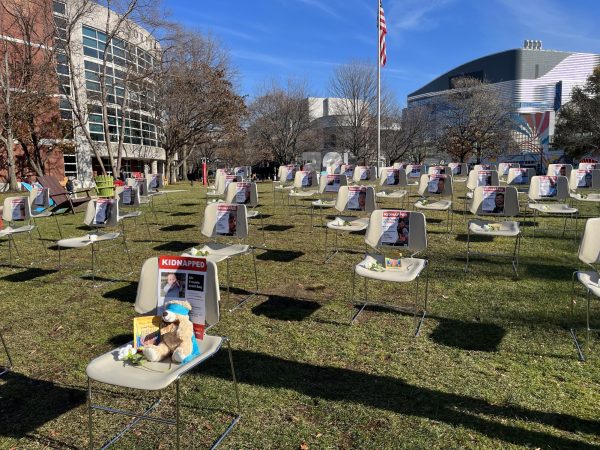
Following the first night of Hanukkah, a coalition of Jewish student organizations set up an array of empty chairs in Centennial Common Dec. 8 to honor hostages taken by Hamas who wouldn’t be home for the eight-night festival.
The chairs, set up by Northeastern Hillel, Chabad Northeastern, StandWithUs and Huskies for Israel, were decorated with white roses and cards celebrating Hanukkah and affixed with posters of people still held hostage by Hamas.
“[We are reminding people that they are still suffering in Gaza,” said one student helping set up the display who requested to remain anonymous due to privacy concerns. “The idea that it’s been so long since hostages had been taken and there are still families that are separated … is really sad, especially that they can’t celebrate such an important holiday.”
Teddy bears, blindfolded with blue streamers, sat in two chairs at the front of the exhibit, representing two children, 5-year- old Ariel Bibas and 10-month-old Kfir Bibas, believed to still be in Hamas captivity. One hundred and eighteen people are estimated to still be in Hamas captivity as of Dec. 9, according to the Washington Post.
Provost gives Huskies for a Free Palestine sit-in during faculty senate meeting
Dec. 6
Ethan Wayne, news staff
The senate opened with a brief update from Madigan, who opened the floor for questions and concerns from senators.
Eric Folmar, elected senator for the Bouvé College of Health Sciences and associate clinical professor of physical therapy, asked about the Dec. 1 Huskies for a Free Palestine sit-in, which occupied the indoor quad of Curry Student Center for eight hours. Folmar asked about the disruption it caused to an event put on by the physical therapy department in the same building.
Madigan, adding that he was “very aware” of concerns surrounding the sit-in, emphasized that Huskies for a Free Palestine is unapproved as an official student group, making it more challenging for the university to regulate events put on by the organization.
“I will say our approach to these things is that speech is protected,” Madigan said. “Hate speech is not [protected], threatening speech is not [protected]. Nor is it ok to interrupt university business. In that particular case, indeed some university business of the type you described … was disrupted and we have a student code of conduct and a whole process for enforcing the student code of conduct that will be applied in this case. There were some rule violations and they will be investigated and pursued in the usual manner that these things are handled.”
Days after the meeting, the university announced that several students involved in the sit-in would face disciplinary action.
Dozens of Northeastern professors sign open letter to legislators calling for ceasefire
Dec. 5
As of Dec. 29, 43 Northeastern professors have signed a Dec. 5 open letter addressed to New England legislators advising for a permanent ceasefire in Gaza and Israel “so that direly needed food, water, medicine, electricity, fuel, and other basic services can reach Palestinian civilians.”
The letter, which is signed by over 1,000 New England college and university scholars as of Dec. 24, outlines four demands for 12 U.S. senators from Connecticut, Massachusetts, Maine, New Hampshire, Rhode Island and Vermont. In addition to a permanent ceasefire, the letter calls for the release of Israeli hostages and detained Palestinians, a United Nations peacekeeping force to be deployed to the Gaza Strip, West Bank, and East Jerusalem, and establishing a commission to investigate alleged war crimes and crimes against humanity.
Signatories also condemned “the ongoing national campaigns to silence students who are speaking up for Palestinian human rights or making legitimate criticisms of Israeli state policies by conflating such speech and activism with antisemitism.”
“Protecting our Jewish and Arab students, our Palestinian and Israeli students, is not a zero-sum endeavor,” the letter reads. “We reject antisemitism, Islamophobia, and anti-Arab racism, along with any other form of bigotry or hate speech, on and off our campuses.
Students for Justice in Palestine hold tribute for those killed in Gaza
12 p.m. – 2 p.m. Dec. 5
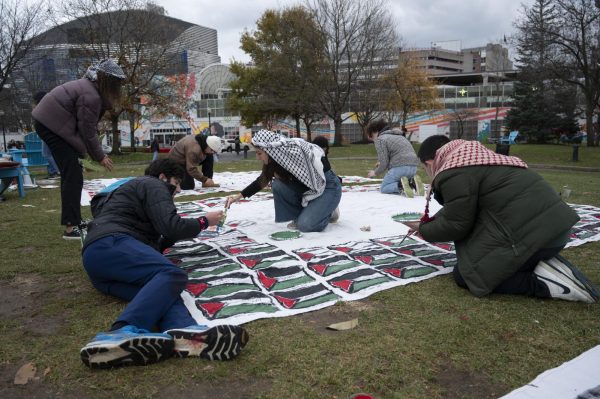
Hundreds of Palestinian flags were painted on large canvases spread over Centennial Common Dec. 5 for a demonstration organized by Northeastern Students for Justice in Palestine. The flags were inscribed with the names of dead Gazans as a “symbol of sacrifice,” according to an Instagram post announcing the event.
The event, where dozens of students painted the flags across four canvases in Centennial, was originally advertised as a display of hundreds of red handprints to represent the thousands killed in Gaza since Israel began its counterattack. But according to several anonymous sources with knowledge of the situation, SJP members were pulled into a virtual meeting with university administrators hours before the demonstration was set to begin and told they had received complaints that the handprints in red paint would be “triggering.”
“The university is very quick to act on triggering stuff when it comes to us,” said one organizer who requested anonymity due to safety concerns. “But we’ve been talking about stuff that’s triggered us in our community for months now, since everything started — even before that — and they’ve ignored that.”
Students taking part in the display said the last-minute disruption to the event, which had been planned days in advance, was indicative of a double standard between treatment of demonstrations by pro-Palestine activists and other groups.
“You have professors who are spewing Islamophobic rhetoric in their classes and online… and you don’t take any action, and yet you’re using Muslim students by pulling them out of their way out of work, in the morning to get an event changed,” said Hilal Zoberi, a fourth-year health sciences major, according to his LinkedIn. “Simply mourning dead Palestinians … shouldn’t be something that is discriminatory to mourn publicly, and that’s something that we’ve struggled to do a lot.”
Northeastern Dean of Students Chong Kim-Wong, who was in Centennial Common observing the event, declined to speak to a reporter.
Organizers also set up posters around the Centennial path with information about the history of the conflict, which passersby stopped to read as they walked through the common.
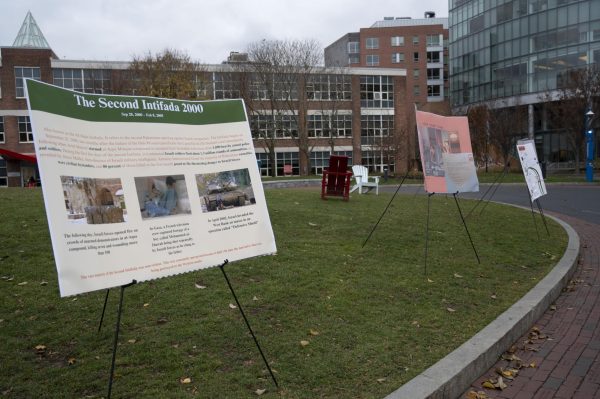
“The biggest thing is just letting people see what’s going on that wouldn’t normally know anything about this situation,” said one organizer who wished to remain anonymous due to safety concerns. “It’s also for our community to not lose hope .. [and] shows the world that we’re still here.”
Students stage eight-hour sit-in expressing solidarity with Palestinians, admonish university’s ‘complicity’ in Israel-Hamas war
12 p.m. – 8 p.m. Dec. 1
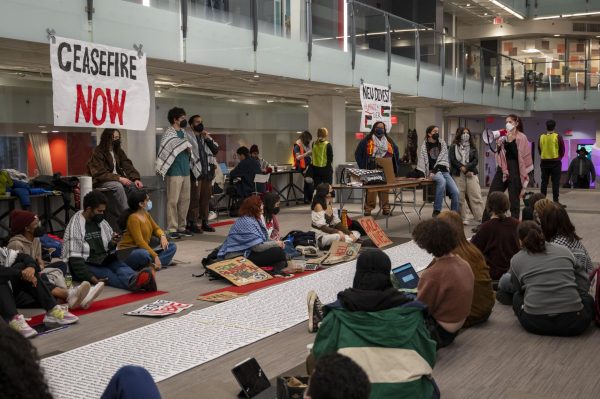
Dozens of students, chants, posters and black-and-white keffiyehs filled the Curry Student Center Dec. 1 as part of an eight-hour sit-in organized by Huskies for a Free Palestine, or HFP.
Students at the sit-in, which ran from noon to 8 p.m., expressed solidarity with the Palestinian people and called on Northeastern to publicly demand an immediate ceasefire and divest from companies that produce weapons being sent to Israel.
“We are here today for a sit-in to honor and to sit in solidarity with Palestinian people who are experiencing genocide in Gaza,” a speaker, who requested to remain anonymous due to safety concerns, said at the sit-in. “We want to sit collectively as a community at Northeastern and hold space, to say that we care and to say that we will not be silenced by the administration or opposition.”
Students affiliated with HFP, an unregistered campus group, have said they’ve felt a lack of support for Palestinian, Muslim and Arab students on campus since the war’s outbreak. A main source of dissatisfaction among HFP supporters is university leaders’ Oct. 10 statement regarding the war, which many students say failed to adequately address the role Israel has played in the oppression of Palestinians.
“I am frustrated, disappointed and appalled that our university did not offer more support for Palestinian, Arab and Muslim students, especially at times when Islamophobia is at its highest,” said one of the speakers at the rally, who asked to remain anonymous due to safety concerns.
Throughout the sit-in, tour groups and families visiting the school viewed the scene as participants chanted “Aoun, it’s time to take a stand, Gaza’s blood is on your hands” and “No more missiles, no more bombs, NEU whose side are you on?”
Some participants joined after seeing and hearing the commotion.
“Me and my friends didn’t know there was a protest going on, but we walked by and saw it and thought we’d come support,” said a student who asked to remain anonymous due to safety concerns. “I hope people see this giant list of names and it makes them really guilty and they want to try to do something about it.”
More than 120 faculty and staff members sign open letter condemning antisemitism
8:17 p.m. Nov. 30
One hundred and thirty faculty and staff, as well as hundreds of students, have signed an open letter to the Northeastern community condemning antisemitism and criticizing those who have used slogans at pro-Palestinian protests such as “From the river to the sea” and “There is only one solution: Intifada, revolution,” for allegedly promoting violence and siding with terrorists.
The letter, which was also signed by 111 students and 52 alumni as of Dec. 3, applauded university leaders’ statement released in the wake of Hamas’ Oct. 7 attack on Israel, which killed 1,200 people and prompted a declaration of war. Signatories include professors and students in every university college, and the letter was written by Konstantin Khrapko, Slava Epsteina and Kim Lewis, professors of biology in the College of Science, as well as Vladimir Torchilin, a distinguished professor in the Bouvé College of Health Sciences, according to Khrapko.
“We take pride in Northeastern University’s prompt and unequivocal stance against Hamas terrorists in the days following the attacks, as well as their more recent statements opposing any form of intolerant speech aimed at harming individuals or groups,” the letter read.
Signatories also said slogans used at a student march in solidarity with Palestinians which took place Oct. 20 “incit[ed] violence and call[ed] for the eradication of the state of Israel.”
“These are not calls for peace, for a ceasefire, or a two-state solution,” the letter said of the chants. “There should be no place for antisemitism and support of violence on our campus. We condemn those who take the side of terrorists in this dark hour for the people of Israel.”
The open letter, which was shared with The News Nov. 30, is the first large-scale expression among faculty and staff regarding the university community’s response to the Israel-Hamas war. Faculty at other universities, including Harvard and Columbia, have signed similar letters calling out pro-Palestinian groups.
“We believe … that many of the demonstrators may not have realized the violent and hateful meaning of the slogans that were chanted,” the statement read. “We hope that they will re-align their statements with their true values.”
Graduate worker union organizing committee releases solidarity statement, criticizes university’s ‘oppressive actions’
1:09 p.m. Nov. 21
The organizing committee of the Graduate Employees of Northeastern University, the recently-certified union representing Northeastern graduate student workers, released a statement Nov. 21 in solidarity with international groups facing human rights violations and calling on the university to “protect its community members’ rights to freedom of expression.”
The statement, which was sent out to members of the Graduate Employees of Northeastern University, or GENU-UAW, and posted on the union’s website, calls attention to several victims of human rights crises, including: Israeli civilians murdered by Hamas; Palestinians subject to a “campaign of genocide” by the Israeli government; Afghani refugees facing forced expulsion in Pakistan and Armenian victims of genocide by the Azerbaijani government.
“These crises of human rights call for solidarity from workers everywhere,” the statement read. “We join a growing number of international and local unions in collectively standing in solidarity with workers and with all people around the world in condemning the forced displacement of and violence against civilians, and all other crimes predicated on hate and a disregard for the sanctity of human life.”
The organizing committee also called upon Northeastern to protect community members’ freedom of expression and pointed to three examples of alleged “oppressive actions” carried out by Northeastern employees and police:
- On October 20th, law school administrators launched an investigation of the Student Bar Association merely for sending an e-mail on behalf of student groups to the broader community advocating for peace. Northeastern administrators have also threatened to open disciplinary proceedings against other students if they organized protests for peace.
- On October 23rd, NUPD officers Doug Comman (badge #30) and Mark Washington (badge #76) assaulted an NUSL student during a peaceful delivery of a letter to the Law School dean.
- On November 9th, a Muslim student reported being profiled by NUPD Officer Doug Comman (Badge Number 30). Officer Comman asked the student, who was wearing a Palestinian kuffiyah during this incident, to show their ID in order to enter the EXP building, where the student’s research lab is located. The EXP building is explicitly stated to be a collaborative building serving hundreds of students daily and ID scanning is not required to enter the main entrance. This incidence of profiling by an NUPD officer with a history of violence contributes to an unsafe environment on campus for students expressing their rights to free speech.
The News previously reported on the Oct. 20 email and a video of the Oct. 23 incident was widely shared on social media. The News could not verify the third allegation.
The statement described Northeastern’s initial response to the conflict as one-sided and stated the university’s Crisis Conversation Series, four professor-led panels discussing the conflict, “under-represents the Palestinian perspective in the conversation.”
“So far the administration has not responded adequately to any of these crises, and in regards to the crisis in Israel/Gaza, they continue to conspicuously ignore violence against Palestinians by attempting to silence and act against students calling for peace,” the committee wrote.
The statement called on Northeastern and union members to take several actions to adequately address the conflict, including ceasing retaliation against protestors, protecting students and employees disproportionately targeted by inflammatory language and university policies, cutting ties to those responsible for the humanitarian crises, supporting congressional calls for a ceasefire, donating to related charities and educating themselves on the histories of antisemitism and Islamophobia.
“As Northeastern employees and union members, we recognize that every human being deserves to live a life of peace and dignity, regardless of where they live and where they work,” the statement reads. “Among the core values of GENU-UAW and the UAW broadly are that all are equal, that we fight for everyone — not just ourselves.”
Per the organizing committee’s request, the statement in its entirety has been embedded below.
GENU-UAW – A Statement of Solidarity from Your Union OC – GENU-UAW_ Graduate Employees of Northeastern UniversityDozens attend pro-Palestine demonstration in Cabot Quad for day of action, demand university response
12 p.m. Nov. 16
Dozens of students and attendees gathered in Cabot Quad at noon Nov. 16 for a rally organized by Northeastern law school students’ recently-formed chapter of Students for Justice in Palestine, NUSLSJP. The protest called for an Israeli ceasefire and demanded “law professionals and universities call out the genocide against Palestinians and Israel breaking international laws,” according to an Instagram post announcing the rally.
Chants from the rally echoed down Huntington Avenue and about five Northeastern University Police Department officers stood nearby as organizers protested for university divestment from military companies that provide arms to Israel. The demonstration was part of a series of mobilizations constituting a national day of action at 25 law schools across the country led by the group Law Students for a Free Palestine.
See pictures from the rally below.
Students for Justice in Palestine hold chalk-in on Centennial Common
12:30 p.m. – 7 p.m. Nov. 15
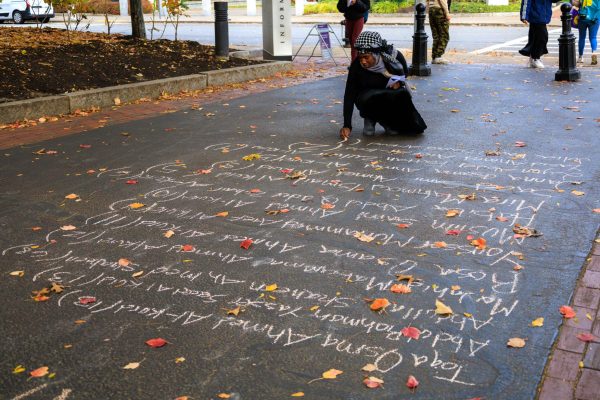
Northeastern Students for Justice in Palestine, along with the university’s law school chapter of the same organization, held a chalk-in Nov. 15 on the paths encircling Centennial Common, writing the names of thousands of Palestinians who have been killed by Israeli forces since Oct. 7.
Twenty to 50 students participated in the chalk-in, writing a total of about 2,500 names on the pavement during the six-and-a-half-hour event, said Mariam Hassan, a first-year student in Northeastern’s School of Law, or NUSL, and an organizer in both SJP chapters. Students worked from a list of over 7,000 casualties publicly identified by the Gaza Ministry of Health released in late October after President Joe Biden expressed doubt in the total death count.
“You can see the different last names and the fact that families are literally getting obliterated together,” said Sarah Abouchleih, a third-year computer science and business administration combined major and organizer with NUSJP. “It’s supposed to be a very disturbing visual.”
The list of names, which spanned 150 pages, was also posted on the window and inside of NUSL Nov. 15. The casualty count as of Nov. 13 stands at 11,100, according to the Washington Post.
Hassan helped organize participants at the chalk-in and distributed the list of names for students to work from. She said she hoped the chalk-in raised awareness for victims of the conflict through a medium that was visible to the community.
“It’s really important for us to physically honor the lives of people that have passed away,” said Mariam Hassan, a first-year student in the School of Law and organizer with SJP. “I want people to see that people stood out here for over two hours … and we’re not even going to get close to the end of the list.”
The demonstration was a collaborative effort between the recently-reactivated Northeastern Students for Justice in Palestine, or NUSJP, and the recently-formed law school chapter, NUSLSJP.
Organizers received university permission to chalk on campus, reserved Centennial for several hours and complied with the Center for University Involvement’s chalking guidelines, organizers said. But Hassan said the two SJP chapters find the university’s demonstration regulations limiting.
“It becomes impossible to do indoor things, disruptive things, and that’s what solidarity with Palestine means,” Hassan said. She said the club does not have the resources or funding to organize a larger display.
News Staff Ananya Kulkarni contributed to this report.
List of Palestinian casualties posted in window and inside of NU School of Law
1:00 p.m. Nov. 15, 10:30 a.m. Nov, 16.
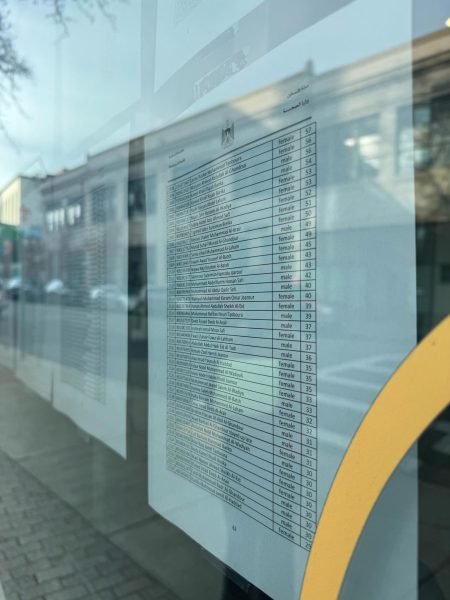
The names of thousands of Palestinians killed by Israeli forces appeared plastered in a window and on a bulletin board inside of the Northeastern University School of Law, or NUSL, Nov. 15.
The lists spanned more than 150 pieces of paper and included the genders, names and ages of over 7,000 people killed in Israel’s response to Hamas’ Oct. 7 attack. The Gaza Health Ministry’s fatality count reports more than 11,100 deaths. In Gaza, with a population of 2.2 million, the death count equates to roughly one in 200 people, the Washington Post reported.
The papers appeared the same day as a campus chalk-in jointly organized by Northeastern’s chapter of Students for Justice in Palestine, or SJP, and law school students’ recently-formed SJP chapter. Organizers with SJP confirmed the events were related and meant to highlight the scale of the casualties.
“The whole purpose of our actions is just to show a visual of how large the number is,” said Mariam Hassan, first year in the School of Law and organizer with NUSL’s SJP chapter.
Posters on the bulletin inside the law school building were later taken down, according to an NUSLSJP Instagram post depicting an empty bulletin board labeled with a timestamp of 10:30 a.m. Nov, 16. Posters in the window of the law school were also removed as of Nov. 27, The News confirmed.
“Our display of the martyr’s names was to show more than just the number of Palestinians that have been murdered by Israel, it was also meant to give those people a name,” Mariam Hassan, an organizer with NUSLSJP, wrote in a statement to The News. “The posters of the kidnapped Israelis [were] not taken by the University. Students were even recorded and exposed for attempting to take them down. Why then, is it okay to take down the names of 11,000 martyrs and shut down our effort of peacefully honoring them?”
Several students in NUSL have been vocal in their expressions of solidarity with Palestinians. Activists have spoken at protests and delivered an open letter to the deans of the law school demanding the school rectify what they called “one-sided discourse” about the war that resulted in a “staggering amount of hate speech towards both Muslim and Arab students.”
Jewish student groups organize on-campus shuk, raising over $3,000 for first responders in Israel
11:30 a.m. – 3 p.m. Nov. 10
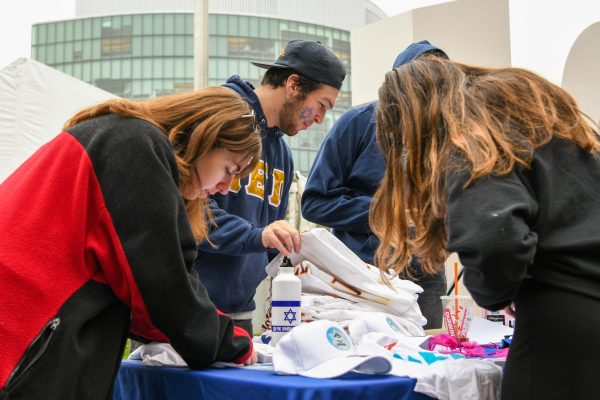
Northeastern’s Jewish student groups sat behind booths in Centennial Common Nov. 10, offering passersby the opportunity to engage with Jewish culture, send letters to Israeli soldiers, buy baked goods and discuss current events in an on-campus shuk — Hebrew for market — organized to raise money for first responders in Israel.
A collaboration between several Jewish-majority student groups including, Alpha Epsilon Pi, Zeta Beta Tau, Huskies for Israel, StandWithUs Campus, Hillel Northeastern, Chabad Northeastern and the Israel American Council, students said the shuk raised over $3,000 for Magen David Adom, Israel’s representative organization to the International Red Cross, according to its website.
The shuk also included booths where students could have their portraits drawn, make candles, throw pie at a fraternity brother and buy merchandise from the student organizations. “Hundreds” of students engaged with the activities, said Naomi Anbar, a second-year theatre and psychology combined major and member of Hillel.
“We had other students who weren’t Jewish, who just happened to be walking by, that stopped to take a look,” Anbar said. “They joined in on the dancing. They joined in on the whole festivities.”
Jewish students at universities across Boston have reported feeling targeted amid rising tensions on college campuses. Sasha Giniger, a third-year political science and international affairs combined major and member of Chabad Northeastern’s board, said Northeastern is no exception.
“A lot of people in our community have felt very unsafe and very alone recently,” she said. “We’ve had a lot of instances of students being yelled at on campus. We have a lot of students who do not feel safe.”
The shuk, Giniger said, was organized to give Jewish students a space where they could express their Jewish identity.
“Part of it was just to make our students on campus, make our Jewish community, feel safe [and] come together,” she added. The shuk served as “a reminder that it’s always important to be open and proud about your Jewishness.”
Liat Weiss, a second-year international business major and member of the Huskies for Israel executive board, said that this optimism in times of crisis is common in Jewish culture.
“It’s so intrinsic to Judaism to be able to celebrate and stay happy even when we’re being persecuted and executed,” they said. “We’re going to mourn and we’re going to grieve. But with that comes being there for each other, supporting each other and raising our spirits.”
Demonstrators block Centennial Common during Huskies for a Free Palestine die-in protest
12:30 p.m. Nov. 9
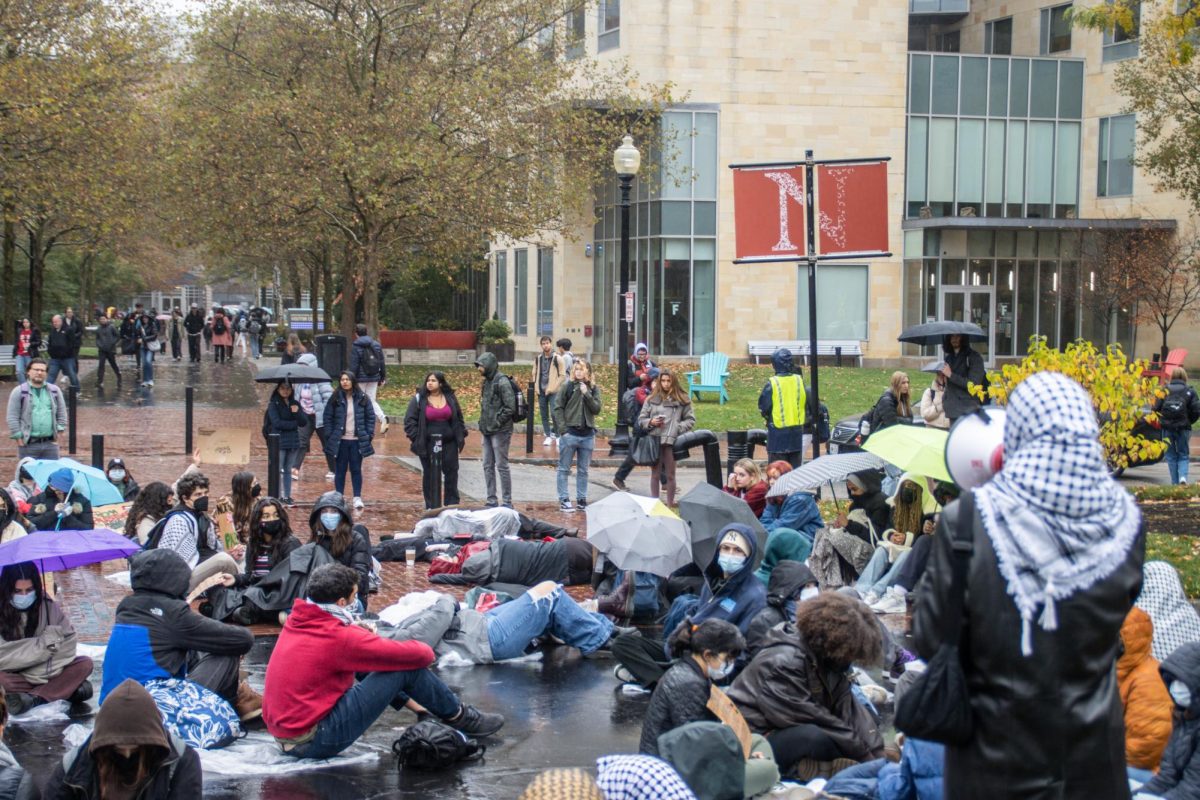
About 100 students blocked off a walkway through Centennial Common on a dreary, misty and cold afternoon Thursday during a die-in demonstration calling for a ceasefire in Gaza.
Huskies for a Free Palestine, a campus group that is unaffiliated with the university, organized the die-in, in which students sat or laid on the ground to represent people who have been killed in Gaza. The gathering opened with speeches from activists who admonished the Israeli government for its relentless attacks on Gaza.
“When people use social media, it’s just really easy to see numbers and not think of the actual human bodies lying on the ground,” said Darcy Flaherty, a third-year sociology major. “It’s just kind of a visual reminder of like, these are human lives.”
After speeches and rallying cries, die-in participants dispersed through Centennial Common, one of the busiest thoroughfares on campus. Some sprawled out on the brick ground under the cold mist while others sat under umbrellas, listening to organizers read poetry through a megaphone and encouraging passersby on their way to class to join the protest.
The demonstration was originally scheduled for Oct. 31 but was abruptly delayed due to what Huskies for a Free Palestine said was a fear of retaliation from the university. The rescheduled date fell on a day where temperatures dropped into the low 40s — several students huddled for warmth as they sat in the rain.
“It’s cold, but what are Gazans doing? They don’t have water, they don’t have food — I don’t think being out in the rain is so hard to do when you’re speaking out for human rights,” said Aysha Chaudhry, a Northeastern student who attended the protest.
The die-in was among several demonstrations held at universities across Boston Thursday, including Berklee College of Music, Boston University, Harvard University and the Massachusetts Institute of Technology. Hundreds also flocked to the Ritz-Carlton Hotel in downtown Boston to protest Vice President Kamala Harris, who visited the city for a campaign event.
Northeastern Students for Justice in Palestine announces return alongside creation of law school chapter
8:40 p.m. Nov. 8
Northeastern’s formally recognized Northeastern Students for Justice in Palestine, or SJP, chapter announced Nov. 8 that they would be returning from years of inactivity to organize on-campus actions in solidarity with Palestinians. The same day, Northeastern law students announced the establishment of The Students for Justice in Palestine Chapter at the Northeastern School of Law.
For weeks, Huskies for a Free Palestine, an unofficial student group formed days after Hamas’ Oct. 7 attack, has organized memorials, walk-outs and die-ins in solidarity with Palestinians. Outside of boosting Huskies for a Free Palestine’s events on social media, Northeastern SJP has not played a formal role in organizing demonstrations, deviating from years of leading the pro-Palestine movement on campus.
Northeastern SJP announced its return amid nationwide calls for university leaders to investigate SJP chapters at universities across the country. The national organization oversees over 200 SJP chapters on college campuses according to its website.
“SJP is coming back to Northeastern stronger and better than ever,” the NUSJP account wrote in an Instagram post. The organization’s return, along with the announced establishment of a Northeastern School of Law SJP chapter, comes after years of controversy and recent admonishment of chapters at several universities across the United States.
In 2014, Northeastern temporarily suspended Northeastern SJP for dispersing fake eviction notices in dorm buildings, and in 2020, the organization faced widespread criticism for a controversial Instagram post which some students said glorified terrorism. The chapter has not hosted an event on campus since May 2021, according to Northeastern’s student organization database, but the Nov. 8 post indicated they would soon resume organizing.
“Northeastern SJP has a long standing history of being unfairly targeted by Northeastern leadership,” Northeastern SJP wrote in the Instagram post. “After being previously shut down in 2014 following an unjust ruling against practices that have never been penalized with other organizations on campus, the SJP recognizes the importance of mobilizing the Palestine cause on campus.”
The Students for Justice in Palestine Chapter at the Northeastern School of Law, of NUSLSJP, announced its establishment, along with a mission statement Nov. 8.
“Northeastern Law Students for Justice in Palestine advocates for the total liberation of the Palestine people,” NUSLSJP wrote in their mission statement posted on Instagram. “We work to support Palestinian self-determination in its totality, including advocating for an end to all settlements, the blockade and siege on Gaza, the apartheid system, the imprisonment, and the incessant genocide of its people.”
The chapter is not officially recognized by the university.
As tensions remain high on college campuses, SJP chapters have faced continued backlash, and at some universities, suspensions. Brandeis University announced that they would no longer recognize the school’s SJP chapter Nov. 8, Columbia University suspended its chapter and the Anti-Defamation League sent an open letter Oct. 25 requesting 200 universities, including Northeastern, suspend their respective SJP chapters.
Northeastern SJP, in collaboration with Rutgers University’s SJP chapter and NUSLSJP, organized a community teach-in on Gaza scheduled for Nov. 14.
College of Social Science and Humanities announces “Crisis Conversation Series” to discuss war in Israel and Gaza
Nov. 8 – 30
On Nov. 2, Northeastern’s College of Social Sciences and Humanities announced a slate of moderated discussions delving into the ongoing war in Israel and Gaza, dubbed a “Crisis Conversation Series,” with a stated goal of providing context, fostering learning, and promoting dialogue surrounding the conflict.
“As the war in Israel and Gaza escalates, universities have an important opportunity to serve as venues for dialogue and debate. Indeed, this is central to our educational mission,” David Madigan, provost and senior vice president for academic affairs, wrote in an email to the Northeastern community promoting the series. “Through these discussions, we aim to unite our community and fortify the bonds that connect us all.”
Hosted by the Center for International Affairs and World Cultures, the series includes five scheduled conversations with faculty scholars from various academic fields.
“President Aoun often says that Northeastern should not merely be a microcosm of society, but a model for society,” Madigan wrote. “I hope that this series—and all of our academic endeavors in this realm—can serve to elevate our discourse and allow us to expand our understanding of the world.”
The conversations, as well as speakers, dates and locations, can be found below.
“Issues of International Law and Human Rights in Israel and Palestine,” A conversation with Zinaida Miller, moderated by Gretchen Heefner.
Nov. 8, 4:15 p.m., East Village 17th floor
“Jewish History, Jewish Responses,” A conversation with Simon Rabinovitch and Lori Lefkovitz, moderated by Mai’a Cross.
Nov. 16, 5:15 p.m., Curry Student Center Ballroom
“Gaza in Historical Context,” A conversation with Ilham Khuri-Makdisi, moderated by Denis Sullivan.
Nov. 30, 4:15 p.m., Curry Student Center Ballroom
“Understanding Israel’s Diverse Society and Populations and the Current War,” A conversation with Rima Farah, moderator TBD.
Date, Time, Place TBD
Students construct memorial altar on Centennial Common to mourn Palestinian deaths
3 p.m. – 8 p.m. Nov. 2
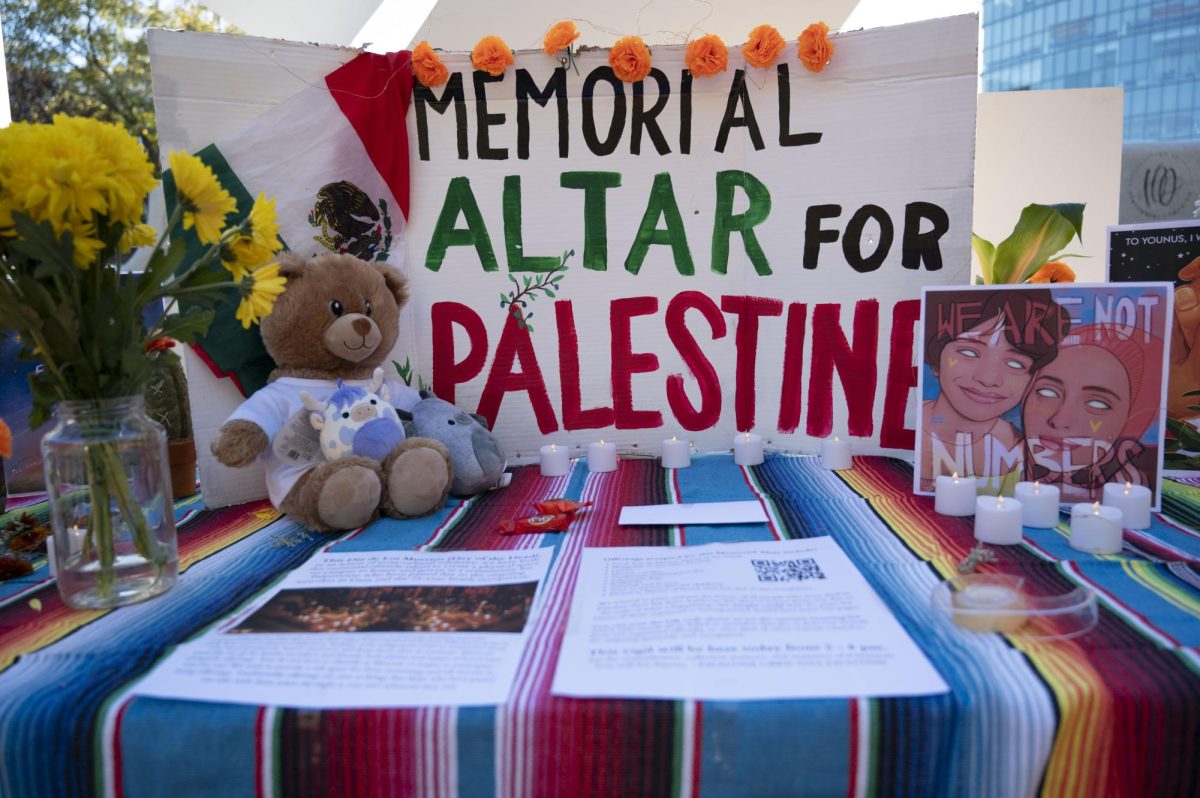
Several students laid out cards, flowers and candles at a memorial altar in Centennial Common Nov. 2, mourning the thousands of Palestinians who have been killed by Israeli forces throughout Israel’s response to Hamas’ Oct. 7 attack.
Huskies for a Free Palestine, or HFP, organized the altar in remembrance of “all who have been lost in the global struggle against oppression” and in the spirit of Dia de Los Muertos, or Day of the Dead. Students contributed artwork and cards to the memorial throughout the afternoon and early evening.
“We mourn the children lost in this genocide and hope for their peace in another life,” HFP wrote in an Instagram post thanking students for contributing to the memorial. “We mourn the reporters who in spite of losing their families in this genocide continue to be the link between Gaza and the rest of the world. We mourn the dead and will continue to fight for the living.”
The Israeli military has reportedly killed over 9,000 Palestinians as of Nov. 4 in response to Hamas’ Oct. 7 attacks, which reportedly killed over 1,400 people and where the Palestinian militant group took over 200 hostages.
Jewish organizations set up “empty Shabbat table” to highlight Israeli hostages kidnapped by Hamas
11 a.m. Oct. 27
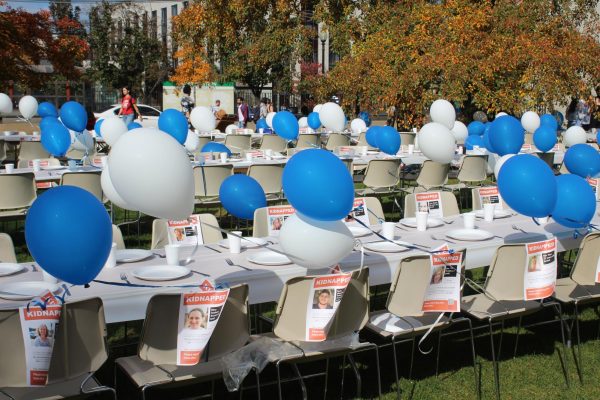
A spread of unoccupied tables adorned with blue and white balloons sat in the Cabot Quad for three hours Oct. 27, with posters of hostages taken from Israel by Hamas taped to 160 chairs.
Deemed the “Empty Shabbat Table,” the display was intended to be a reminder of the more than 200 hostages Hamas kidnapped from Israel during their Oct. 7 invasion. The memorial, which mirrored installations across the country, was organized by a coalition of campus Jewish and student organizations including Northeastern Hillel, Huskies for Israel, Chabad at Northeastern University, Zeta Beta Tau, Alpha Epsilon Pi, the Israeli American Council and Stand With Us.
“Our brains have a hard time visualizing statistics, so just seeing it all in front of me it really hit just how many people are still hostage,” said Inbar Ofer, a fifth-year computer science and behavioral neuroscience combined major and member of Northeastern Hillel. “Only 160 [chairs] fit on the quad, and so we were short by 70 chairs and it still felt massive to me.”
The tables were prepared for a typical Shabbat dinner, filled with plates, cups and silverware along with traditional Shabbat victuals — bottles of grape juice and covered loaves of challah.
“It’s so important to be with community right now and to partake in things like this for all those lives, for all those kidnapped, for all our friends and families,” said Shira Ashkenazi, a third-year international affairs major who was born and raised near Tel Aviv, Israel. “We just want them to return safely home.”
News staff Zoe MacDiarmid contributed to this report.
Anti-Defamation League, Brandeis Center for Human Rights send letter calling on hundreds of university presidents to investigate pro-Palestinian campus groups
1:50 p.m. Oct. 25
ADL-LDB-Letter-re-SJP-10-25-23
President Joseph E. Aoun was among 200 university presidents to receive a letter Oct. 25 from Jewish rights groups demanding the investigation of campus chapters of Students for Justice in Palestine, or SJP.
Authored by the Anti-Defamation League, or ADL, and the Brandeis Center for Human Rights Under Law, the letter urges universities to investigate their respective SJP chapters for potential violations of federal terrorism laws, namely attempting to materially support a foreign terrorist organization.
“Some SJP chapters have issued pro-Hamas messaging and/or promoted violent anti-Israel messaging channels,” the letter reads. “SJP chapters are not advocating for Palestinian rights; they are celebrating terrorism.”
The letter claims the student group uses “propaganda often laced with inflammatory and combative rhetoric” that attacks Jewish students for their identities.
While Northeastern does have a chapter of Students for Justice in Palestine, the two most recent demonstrations in solidarity with Palestine have been organized by Huskies for a Free Palestine, which is not listed as an official organization with the university.
Presidents at neighboring universities including Tufts University, Harvard University, the Massachusetts Institute of Technology, Boston University, Boston College and the University of Massachusetts Boston also received the letter, the Brandeis Center confirmed.
“If universities do not check the activities of their SJP chapters, they may be violating their Jewish students’ legal rights to be free of harassment and discrimination on campus,” the letter says.
The ADL and Brandeis Center previously sent a letter to more than 500 university presidents Oct. 12, instructing them to protect Israeli and Jewish students’ safety during SJP’s National Day of Resistance and Hamas’ call for worldwide day of protest.
Students walk out of classes to protest suppression of pro-Palestinian sentiments on campus, call for ceasefire in Gaza
12 p.m. Oct 23
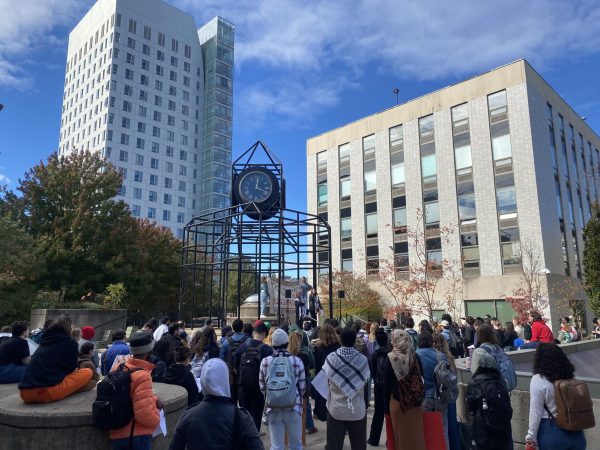
More than 100 students left class and gathered in Richardson Plaza at noon Oct. 23 to call for a ceasefire in Gaza and admonish the university for allegedly promoting “one sided discourse” resulting in “a staggering amount of hate speech towards both Muslim and Arab students,” according to a letter drafted by Huskies for a Free Palestine and delivered to the deans of Northeastern School of Law.
“We’re here because we’ve been hurting since 1948, not since October 7,” said a Northeastern School of Law, or NUSL, student who spoke to students gathered for the walkout in front of a banner reading “CEASEFIRE, STOP THE OCCUPATION.” The speaker wished to remain anonymous due to privacy concerns. “We’re here because our university president and our institution as a whole has refused to acknowledge the brutal militant occupation that Palestinians have endured for 75 years, not for a week.”
The two NUSL student speakers at the walkout, organized by Huskies for a Free Palestine, focused on campus discourse related to the Israel-Hamas war within NUSL. They pointed to the law school’s response to a statement in solidarity with Palestinians sent to the law school’s in a mass email by Chair of NUSL’s Student Bar Association Michael Allen, which deans of the law school later said “should not have been sent out” and is being investigated as a possible “procedural violation.”
[The school is] “okay with pro-Israel stances, but the second that pro Palestine is brought up? All of a sudden that’s too political for us to talk about,” one speaker said. “We’re tired of the double standards that our university continues to exhibit on a daily basis.”
After circulating a printed letter addressed to the deans of NUSL among attendees demanding the deans’ “re-commitment to NUSL’s mission in fostering a safe, inclusive, and respectful learning environment,” the group marched to the deans’ office to deliver the letter.
“Each of these demands … move the needle on taking an anti-apartheid stance,” another speaker said.
Second rally organized by Huskies for a Free Palestine draws hundreds of students, community members
5:30 p.m. Oct. 20
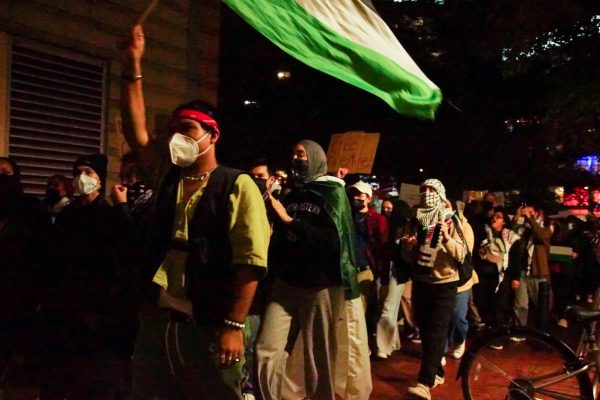
Hundreds of students rallied in Centennial Common the evening of Oct. 20 in solidarity with Palestinian people as violence continues to rage in Israel and Gaza. It was the second gathering in the past week organized by Huskies for a Free Palestine. After listening to speeches, protestors proceeded to march through campus, moving down Huntington Avenue and circling back to the Common through Snell Library Quad.
“We are standing here together witnessing a catastrophic unfolding of history as we mourn people on the ground in Gaza who are being mercilessly bombarded and killed in what we can deem as nothing but genocide,” said one of three speakers at the rally, who each remained anonymous and wore masks due to privacy concerns stemming from recent doxxing of students at Harvard University.
Since the attack, tensions on college campuses across Boston have intensified. Many students said they feel unable to safely speak out in support of Palestine without being labeled as anti semitic. Even when they do, speakers at the rally stressed, they feel unheard by the university, which one speaker accused of silencing pro-Palestinian sentiments and “promot[ing] academic dialogue only when they feel like it.”
“Zionism and Judaism are not the same thing,” one speaker said. “Zionism believes in the formation of a land for Jews at the expense of Palestinians, whereas Judaism is a religion. That is why today we see Jews who oppose Israel’s stance on Zionism.”
Huskies for a Free Palestine issued several demands for the administration, detailed in a post on the group’s Instagram page. They called for increased protection of the voices of Palestinian, Arab and Muslim students on campus, as well as a formal statement of support for Palestinian people from the university.
View this post on Instagram
Yafa Suleiman, a local Palestinian who heard about the rally on Instagram, said she has family living in the West Bank and came to the march to speak up for human rights on behalf of those who are scared or not in a position to advocate.
“[My family is] safe, but to me, I’m Palestinian, and everyone in Palestine is my family,” Suleiman told The News. “As a Palestinian it’s very stressful. I am very proud to be a Palestinian, but at the same time, it’s very hard to be one.”
Northeastern School of Law leadership say SBA Chair statement was a possible “procedural violation”
1 p.m. Oct. 20
Important Message Regarding Law School Email Protocol
A mass email statement in solidarity with Palestine from Chair of Northeastern School of Law’s Student Bar Association Michael Allen “should not have been sent out,” according to an Oct. 20 email from three of the law school’s top officials.
The email addressed a statement Allen sent from a Student Bar Association email account to the entire School of Law Oct. 14. In the statement, Allen expressed support for Palestinian people and condemned President Joseph E. Aoun’s “irresponsible and unjust framing” of Hamas’ attack on Israel in an Oct. 10 statement.
View this post on Instagram
In Friday’s email, three deans — Hemanth Gundavaram, associate dean for academic affairs; Brian Carlisle, dean of students and assistant dean for academic affairs; and Greg Houghton, associate dean for administration and finance — said they had been contacted by students concerned about the statement and are currently looking into the incident.
“This email should not have been sent out using the official SBA email account because it did not have the endorsement of the SBA,” the email read. “We are conducting a thorough review of the incident, including future protocols and training regarding the appropriate use of university systems.”
The deans wrote that they were concerned with the “procedural violation” of improper use of a student listserv.
Earlier in the week, two students and numerous unnamed co-signatories sent an open letter to Aoun and Dean of Northeastern School of Law James Hackney condemning Allen’s letter and called on the university to do the same. The authors, Northeastern students Inbar Ofer and Naomi Anbar, said the statement Allen sent out was “littered with inaccuracies and straight-up falsehoods.”
Dozens of posters appear around campus with photos of Israeli kidnapping victims as part of global ‘KIDNAPPED’ campaign
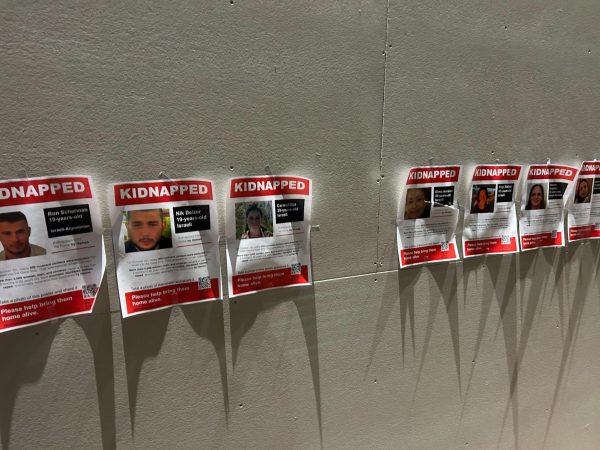
Posters depicting missing people in Israel kidnapped by Hamas appeared on buildings and structures across campus Oct. 17, bringing a national awareness campaign launched last week to Northeastern’s campus.
Posters appeared outside of Snell Library on academic buildings surrounding Centennial Common, near Krentzman Quadrangle and on the Interdisciplinary Science and Engineering Complex bridge. Several students were seen scanning the posters’ QR code and reading hostages’ names.
The posters are part of a global campaign, #KidnappedfromIsrael, to raise awareness for the people kidnapped by Hamas. They show the faces, names, ages and country of origin of people in Israel taken hostage Oct. 7 by the Islamic, Palestinian militant group.
The News could not verify who had put up the posters on campus.
In the last week, the posters appeared across the country and abroad as part of the “humanitarian project” created by two Israeli artists based in New York City, Dede Bandaid, 36, and Nitan Mintz, 32. The duo, along with two designers, made the design publicly available roughly one week ago and can be printed in 12 languages, the New York Times reported.
Because there is no verified public list of kidnapping victims, Mintz and Bandaid gathered names and photos of the abducted from direct outreach to families and friends, according to the New York Times.
“On October 7th, nearly 200 innocent civilians were abducted from Israel into the Gaza Strip. Their whereabouts remain unknown,” the posters read. “More than 3,000 women, men, and children, ranging in age from 3 months to 85 years old, were wounded, murdered, beaten, raped, and brutally separated from loved ones by Hamas.”
The posters request passersby help spread awareness of the campaign.
“Take a photo of this poster and share it. Please help bring them home alive,” the posters read on the bottom, above a QR code that directs to the campaign’s “KIDNAPPED” website.
News staff Zoe MacDiarmid contributed to this report.
Doctoral candidate responds to students’ demand he be investigated for Israel-Hamas tweets
10:45 a.m. Oct. 17
Two days after the release of a petition calling on the university to investigate Yoni Michanie for his pro-Israel comments on X, the fourth-year political science doctoral candidate and international relations lecturer responded to his critics in a Newseek op-ed, calling the petition’s claims “nonsense.”
In the op-ed, Michanie says the petition — which has 1,800 signatures as of Thursday afternoon — is “singling [him] out in a malicious yet futile attempt to intimidate and silence [him].” He reflects on Hamas’ “crimes against humanity” on Israeli civilians, writing about how the attacks “fueled a wave of antisemitism around the world.”
Michanie denounces “anti-Israel” groups on college campuses, which he says are “cloaking their antisemitism with universal progressive rhetoric” by not denouncing Hamas.
“What nuance is there in condemning those who speak out against Hamas’ pogrom? That is exactly what these ‘anonymous’ students failed to address in their petition,” Michanie writes.
He defends his tweets, which the petition says target Palestinian and Muslim students on campus by calling them “Nazis,” as solely meant to condemn “a terrorist organization that seeks to ethnically cleanse my people.”
“None of my advocacy since October 7 references Northeastern’s campus, administration, or student body,” Michanie writes. “Supporters of this petition egregiously omitted my continued calls for the preservation of civilian life where possible while simultaneously supporting Israel’s inherent and absolute right to self-defense under international law.”
Two Northeastern students, numerous co-signatories respond to Student Bar Association statement, demand denunciation letter from Aoun
12 p.m. Oct. 16
Statement on NUSL 'Solidarity for Palestine' Email
In an Oct. 16 letter addressed to President Joseph E. Aoun and Dean of Northeastern School of Law James Hackney, two Northeastern students called on officials to denounce an Oct. 14 statement from Michael Allen, chair of Northeastern Law’s Student Bar Association, titled “Solidarity for Palestine.”
The letter, which authors Inbar Ofer and Naomi Anbar wrote, was “co-signed by a numerous and growing number of individuals and students” and said Allen’s letter was “littered with inaccuracies and straight-up falsehoods.” The statement then addresses what Ofer, a fourth-year computer science and behavioral neuroscience combined major according to Linkedin, and Anbar, a second-year theater and psychology combined major according to Linkedin, called “distortions of fact” in Allen’s letter.
They assert that, contrary to Allen’s claim of Israeli settler-colonialism, Jews meet all the criteria for indigeneity, and that “Indigenous peoples cannot be settler-colonialists in their own indigenous lands.” Ofer and Anbar argue that anti-Zionism is anti-Semitism. They also dispute the claim that Israel’s government practices apartheid and admonish the chair of the Student Bar Association for not laying blame for Palestinian deaths on Hamas.
“The fact that the Northeastern University law students rushed to justify the massacre of more than 1300 innocent Jewish civilians, including babies, young boys and girls, and Holocaust survivors, can only be explained by either anti-Semitism or ignorance,” they wrote. The letter demands an immediate response from the university and added that “by leaving this letter unaddressed, Northeastern University is giving it a stamp of approval.”
The university did not immediately respond to request for comment.
Students petition Northeastern to revise statement on Israel-Palestine conflict, investigate doctoral candidate who engaged in ‘hate speech’
10:15 p.m. Oct. 15
Over 1,100 people have signed a petition as of 10 p.m. Oct. 16 urging Northeastern to revise its statement on the war in Israel and Gaza, which the petition says has “produced a threatening and dangerous climate for Palestinian and Muslim students across our own campus.”
Northeastern’s statement, published Oct. 10, condemned Hamas’ attack on Israel and stated the university mourned “all the innocent lives that have been lost.”
The petition said the statement was one-sided and favored Zionist beliefs, causing Palestinian and Muslim students to feel unsafe on campus.
“We urge you to reconsider your position and take a more balanced and compassionate approach to the situation, acknowledging the tragic loss felt on both sides,” the petition, authored by “Students at Northeastern University,” reads. “This one-sided approach has incited hatred on this campus. Students have been called terrorists, and women with the Islamic religious scarf (Hijab) on have been followed, with pictures taken of them and threatening notes left on cars.”
The petition also requests the university investigate Yoni Michanie, a Northeastern doctoral candidate in political science, for several incendiary comments he posted on X, formerly Twitter, in the days following Hamas’ attacks and Israel’s declaration of war.
Michanie, who has over 27,000 followers on X, posted dozens of tweets in response to the conflict in Israel and Gaza. The petition specifically points out three of Michanie’s tweets, stating they “are not only insensitive but completely unacceptable, as a representative of Northeastern” and calls on the university to “thoroughly investigate this matter, considering the harm that his actions have caused.”
“Your Ph.D. Political Science student, Yoni Michanie, who teaches international relations courses, is engaging in hate speech on both public social media accounts and in his classes,” the petition reads. “Michanie is targeting Palestinian students, Muslim students, and other members of the community on campus, calling them Nazis, terrorists, and inciting dangerous conflict on campus.”
We don’t make Nazis comfortable on campuses at the expense of those they victimize.
Stop making Islamists comfortable on campus while they call for more Jewish babies to be decapitated and burned — it isn’t that hard to do.
— Yoni Michanie (@YoniMichanie) October 13, 2023
In an Oct. 13 tweet, Michanie compared Islamists and supporters of Palestine to Nazis. Hours later, he tweeted in response to a pro-Palestine demonstration on campus that “Hamas’ invasion forced anti-Israel groups on campus to do all that was left for them to do: try and normalize the slaughtering of Jews. I suspect their radicalization will bring about much more violence towards Jews on campuses.”
The next day he tweeted that humanitarian aid should be withheld from Gaza until Hamas releases all Israeli hostages.
“As a direct result of Yoni Michanie’s comments, we fear for our safety and emotional well-being, not only in this individual’s classes but also on campus as a whole,” the petition read.
Michanie has since responded to the petition on X, stating he “will not apologize for denouncing the slaughter, rape, and beheading of Israeli civilians.”
Northeastern Law School Student Bar Association Chair releases statement in solidarity with Palestine
10 a.m. Oct. 14
Fwd_ Solidarity for Palestine (1)The morning of Oct. 14, Michael Allen, Chair of Northeastern’s Law School’s Student Bar Association, or NUSL SBA, sent an email to members of the organization “expressing solidarity with Palestine” and condemning President Joseph E. Aoun’s “irresponsible and unjust framing” of Hamas’ attack on Israel as unprovoked in his Oct. 10 statement.
“As a top public interest law school in the nation, it is important to me that we maintain a track record of standing in support of oppressed, marginalized, and colonized people — even when it is difficult — and I would be remiss to not give space for some of the context and history surrounding Palestine,” Allen wrote in the email obtained by The News.
Allen attached a letter written by an anonymous coalition of students and student organizations at NUSL that expressed support for Palestine and referred to its history of occupation by Israeli forces. Allen redacted the names of the student organization signatories, citing “the ongoing backlash against students throughout the United States articulating solidarity with the Palestinian people.”
Solidarity for Palestine
“Palestinians have been subjected to the longest ongoing military occupation in history and constant land theft. Nevertheless, their right to resist this oppression is enshrined in international law,” the coalition’s letter read. “We mourn the Israeli lives lost this weekend — and we mourn the lives of Palestinians who have been killed at disproportionately higher rates since the establishment of Israel.”
Northeastern students hold demonstration in support of Palestine
5:30 p.m. Oct. 13
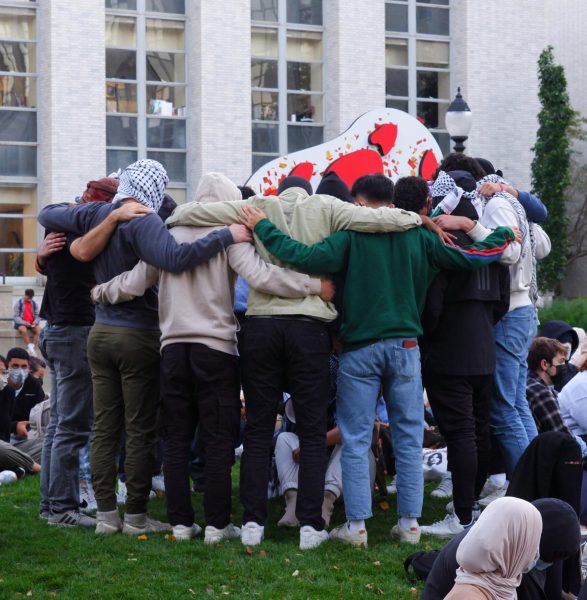
Dozens of Northeastern community members gathered on Krentzman Quad the evening of Oct. 13 in a demonstration in solidarity with Palestine. Students held up the Palestinian flag and signs reading “Free Palestine” and “From the river to the sea” while sitting in mourning and in protest of the university’s and Western nations’ response to the war, which some students called hypocritical. During the gathering, which was advertised as a silent demonstration, several students stood up to speak in support of Palestine, urging attendees to use the privilege of holding a protest to be vocal in their show of solidarity. Eventually, the hush quiet gave way to chants and cheers in support of Palestine.
Many students said they feared they would face retaliation if they were to speak up in support of Palestine. An Instagram post announcing the rally told attendees not to identify themselves and to wear masks. After a conservative group drove a truck through Harvard Square Oct. 11 doxing members of student organizations which publicly supported Palestine, demonstrators that spoke with The News said they felt unsafe at the university.
Anonymous Palestinian students and allies who spoke with The News said they felt “unseen and unheard” by the university after the administration’s statement did not address victims in Gaza.
Northeastern School of Journalism and School of Public Policy and Urban Affairs host panel on Israel and Gaza
6 p.m. Oct. 11
The Northeastern School of Journalism and School of Public Policy and Urban Affairs hosted an open classroom panel Oct. 11 discussing the ongoing war in Israel and Gaza. Veteran journalists and Northeastern professors discussed media coverage of the war, and students had the opportunity to ask the experts questions.
The panel discussed how the media often uses inflammatory language that exacerbates hot-button issues and, in this case, further divides supporters of Palestine and supporters of Israel.
“Over-inflammatory hyperbolic language is unnecessary,” said Jill Abramson, former editor of the New York Times and current journalism professor at Northeastern during the panel. “It’s counterproductive in the most extreme way. … Words should be chosen carefully.”
Northeastern students gather in solidarity with Israel
7 p.m. Oct. 10
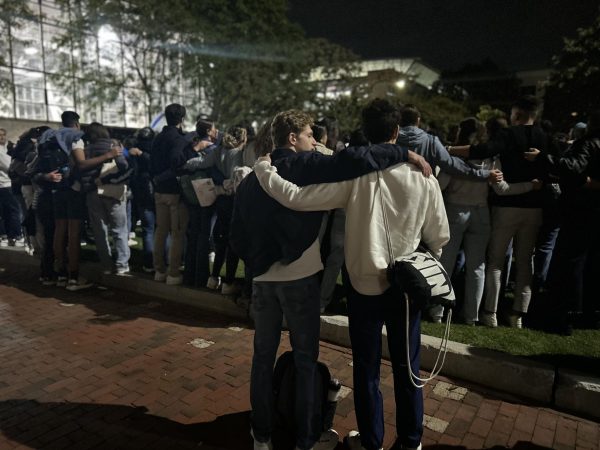
Hundreds of Northeastern community members gathered on Cabot Quad in solidarity with Israel the evening of Oct. 10 after Hamas’ attacks on the country.
Many wore blue and white, some men wore kippot and others donned the Israeli flag in support of the country. Jewish student organization leaders and rabbis spoke in support of Israel and mourned the thousands of deaths caused by the attack — many of which included family members and friends of speakers and community members.
“My country will never be the same,” Liron Raphael, an Israel fellow at Northeastern, said in her speech at the gathering. “There will be an Israel before Oct. 7 and an Israel after Oct. 7.”
Northeastern releases a statement condemning Hamas’ attacks
12:30 p.m. Oct. 10
United Against Hatred - Outlook
President Joseph E. Aoun and Provost and Senior Vice President of Academic Affairs David Madigan released a statement Oct. 10 condemning Hamas’ attacks on Israel and stating the university mourns “all the innocent lives that have been lost.”
The statement was spread across various platforms, including Instagram, where over 800 people have commented as of 11:30 p.m. Oct. 15. Some thanked Northeastern for condemning the attacks, while others admonished the university because of what they deemed was a failure to address the role Israel has played in the oppression of Palestinians.
Three Northeastern students evacuated from Israel
Oct. 9
Three Northeastern students who were in Israel during Hamas’ attack were safely evacuated from the country, Northeastern Global News, or NGN, reported Oct. 10. Two students, Jesse Ruigomez and Keren Doherty, were in Tel Aviv on co-op. Joshua Einhorn, an N.U.in student studying in Greece was visiting family and friends in Jerusalem for the Jewish holiday Simchat Torah.
Northeastern’s global security team and Masa, an agency that facilitates study abroad programs, helped the three students evacuate the country, according to several reports. Ruigomez and Doherty were both transported to Ben Gurion Airport, where they flew to Madrid, Spain, and Lisbon, Portugal, respectively. Einhorn, NGN reported, returned safely to Athens Oct. 8.










